- صفحه اصلی
- درباره همایش
- کمیته های علمی
- برگزارکنندگان و حامیان
- فراخوان ها
- فراخوان علمی همایش
- فراخوان کنگره شعر
- اخبار و گزارش ها
- اخبار همایش
- پیش نشست های علمی
- همایش سه روزه
- برای پژوهشگران
- درباره حضرت ابوطالب
- تراث ابوطالب
- شیوه نامه تألیف مقالات
- شعر و ادب
- نوحه
- چند رسانه ای
- دانلود پوستر و بروشور
- گالری تصاویر
- دانلود ویژه نامه ها
- ارتباط با همایش
- نشانی دبیر خانه
- ارسال مقالات
Latest publications of AhlulBayt (a.s.) World Assembly in different languages
One of the activities of the AhlulBayt (a.s.) World Assembly is the translation of authentic books into various languages.
One of the activities of the AhlulBayt (a.s.) World Assembly is the translation of authentic books into various languages. In this article we introduce some of these books.
“The Perfect Man”/ Bengali
In the book “The Perfect Man”, the author examines Islam’s view of the perfect man and critiques other views. In the first chapter of the book, the author discusses ways to recognize the characteristics of a perfect human being from the perspective of Islam, and the need to develop human values in order to achieve the humanity of a human being. In the following, he evaluates the point of view of some schools of thought about the perfect man, including Rationalism, Mysticism and Sufism, Power, Socialism and Existentialism. According to the author, each school of thought has paid attention to just a single part of the different dimensions of man, and despite succeeding in examining some parts of human truth, they have not been able to provide a comprehensive model for the full development of man, as offered by Islam.
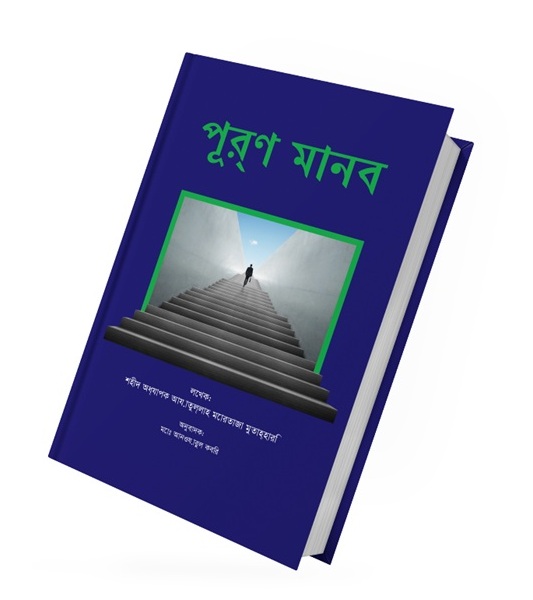
The book “The Perfect Man” by martyr Ayatollah Morteza Motahari, is translated by Mr. Abulqasem Mohammad Anwar al-Kabir into Bengali in 293 pages and single volume. The AhlulBayt (a.s.) World Assembly Publications has published this book in medium octavo size and made it available to those who are interested.
“Secret of Prayer” / Bosnian
The book “Secret of Prayer” is about the importance of prayer among worships and explains some of its secrets. The author begins his book with a discussion of why and how to worship, and then briefly mentions the conditions for the correctness, acceptance, and perfection of worship, as well as the signs of its acceptance by God. Then, by giving a special place to prayer, he mentioned the performing prayer as the best thanksgiving to God. In this book, also each part of the prayer, including the preliminaries of the prayer – including purity, clothing, place, qibla and Azan (call to prayer) –, the parts of the prayer – including: Niyyah (intention), takbir, Surah Hamad, Surah Tawhid, Roku (bowing), Sojud (prostration), Tasbihat Arba’ah, Qunut, Tashahhud and Salaam –, and the recommended deeds after the prayer – such as Tasbihat Hazrat Zahra (a.s.) and Sajdah Shukr –, has been carefully considered by the author. By giving a brief interpretation of the mentioned cases, the author has pointed out their effect on training the spirit of human worship.
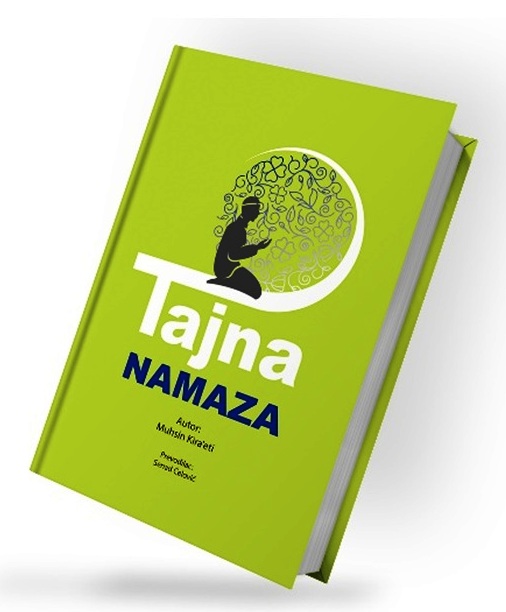
The book “Secret of Prayer” by Hojat al-Islam Qeraati, is translated by Mr. Sanad Ćelowić into Bosnian in 116 pages and single volume. The AhlulBayt (a.s.) World Assembly Publications has published this book in crown octavo size and made it available to those who are interested.
“Prayer, the Ascension of the Believer” / Bosnian
The main audience of the book “Prayer, the Ascension of the Believer” is people who have just reached the age Sharia puberty and are required to perform obligatory religious obligations. By illustration, the author has tried to teach the prayer, the preliminaries, the conditions, the rules, the dhikrs and the Mubtilat (things that break the prayer) in a simple way. This little book begins by naming the Osul al-Din and Foru al-Din (principles and sub-principles of Islam), and the preliminaries of prayer, and then deals with the subject of Taharah (purity based on Islamic Rules). It also states the conditions of correctness, quality and Mubtilat of Wozu (ablution), and then how to perform Tayammum, the time when Tayammum becomes obligatory, the things with which Tayammum is correct, and the conditions of correctness and Mubtilat of Tayammum. Following that, the conditions of the worshiper’s clothes, the times of the prayers, the qibla, Azan (the call to prayer) and the Iqamah, the quality of the prayers, the duties, and pillars of the prayers, Mubtilat, and the correct doubts in the prayers are explained.
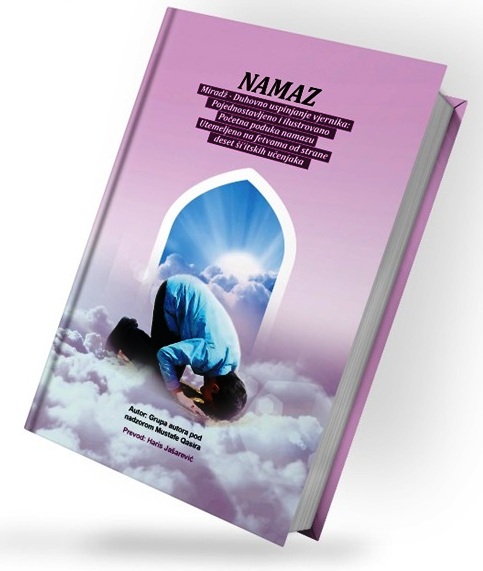
The book “Prayer, the Ascension of the Believer” by Mr. Mustafa Qusayr, is translated by Mr. Hareth Yašawić into Bosnian in 87 pages and single volume. The AhlulBayt (a.s.) World Assembly Publications has published this book in crown octavo size and made it available to those who are interested.
“The Truth as it is”/ Chichewa Language
In the book “Truth as it is”, the author intends to briefly introduce the Twelver Shiite intellectual frameworks, regardless of any arguments and addresses the common doubts, accusations, and differences between different Islamic denominations. He raises forty different issues, such as: why the followers of Twelver Shiite are called Jafari, their number and place of residence in the world, their historical place in Islam, their belief in God, the Quran and the Companions, their view on the issue of caliphate and Imamate after the Prophet Muhammad (p.b.u.h), and their obedience to the Imams. In this way, he tries to examine the differences between Shiite beliefs and the beliefs of other Islamic denominations.
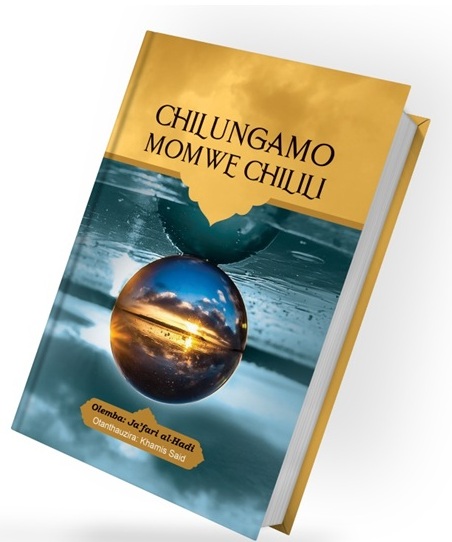
The book “Truth as it is” by Hojat al-Islam Jfar Al-Hadi, is translated by Mr. Khamis Saeed into Chichewa Language in 57 pages and single volume. The AhlulBayt (a.s.) World Assembly Publications has published this book in crown octavo size and made it available to those who are interested.
“A critical study on the origins and development of Takfiri groups’ principles” / Persian
In book “A critical study on the origins and development of Takfiri groups’ principles”, the growth and influence of ISIL in countries and societies has been well studied and it has been stated that the nature of this influence does not end only with physical presence, rather it has more theoretical and ideological aspects. In other words, these are takfiri beliefs that are growing and expanding in different parts of the world, including backward and developed societies, and violent actions are only a manifestation of their ideas and intellectual and theoretical views. With military operations against these groups, the fire of violence may be extinguished for a while, but takfiri thought will continue to live in the hidden layers of society. In this research, the works, books, lectures, related sources, beliefs, and principles of these groups, especially ISIL, have been studied, in order to find the reasons for ISIL’s attractiveness for the young generation. In the book, on the other hand, the contradictions of this idea with the original Islamic thought will be explained.
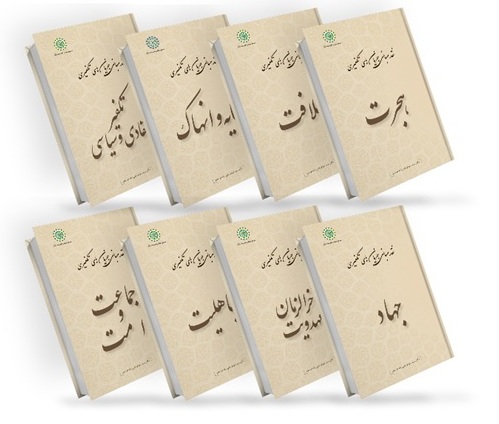
The book “A critical study on the origins and development of Takfiri groups’ principles” by Sayed Mahdi Alizadeh Mousavi, is written in Farsi in 810 pages and 8 volumes. The AhlulBayt (a.s.) World Assembly Publications has published this book in octodecimo size and made it available to those who are interested.
“Fiqh of Imam Jafar Sadeq (a.s.)” / French
The book “Fiqh of Imam Jafar Sadeq (a.s.)” contains a course of reasoning jurisprudence, based on the principles of Twelver Shiite jurisprudence. The author, who has considered the abundance of argumentative jurisprudential books along with referring to the theories and views of different jurists as the reason why many today’s religious and non-religious scholars are not like interested in this divine knowledge, has tried in his book that in addition to keeping the content brief, refer to the relevant types of verses and narrations regarding the different sections of the practical rulings and the opinions of the jurists, regardless of the common disputes between them. He also admits that he refrained from mentioning the sources of the hadiths I his book due to his trust in the practice of jurists. The book begins with the Ahkam (Sharia rules) of different types of water and Najasat (things that are unclean according to Islamic rules), then it refers to the contents related to the conditions and Ahkam of different types of prayers, and it ends with topics such as: fasting, Iʿtikāf, Zakat, Khums and Hajj.
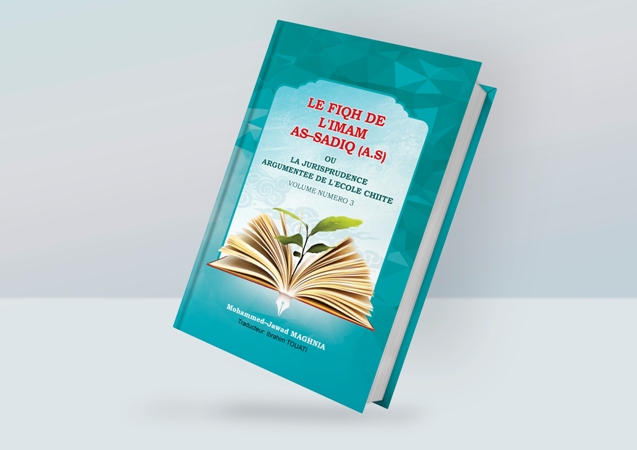
The book “Fiqh of Imam Jafar Sadeq (a.s.)” by late Mohammad Javad Moqnieh, is translated by Ebrahim Tawati into French in 327 pages and single volume. The AhlulBayt (a.s.) World Assembly Publications has published this book in medium octavo size and made it available to those who are interested.
“AR-RIHLA AL-MADRASIYYA” / French
The book “AR-RIHLA AL-MADRASIYYA” reviews some of the topics in the Torah and Gospel and compares them to the Quranic teachings. At the beginning of the book, and in the form of an introduction to the research, three topics of monotheism, the belief in the occurrence of distortion in the Old and New Testaments, and the ethics of the divine prophets are presented. In the following, pointing to examples of internal contradictions and various distortions in the New and Old Testaments, inaccurate attributes attributed to God and divine prophets, the author explained the contradictions with external, historical, and scientific facts, and highlighted the deviation of the Bible from the main path of human guidance. In another part of his book, the author gives an overview of the various Gospels, the characteristics of the Twelve Apostles of Jesus, how the Gospels introduce Christ, the reasons given in the Bible about the resurrection, and the differences between the Old and New Testaments.
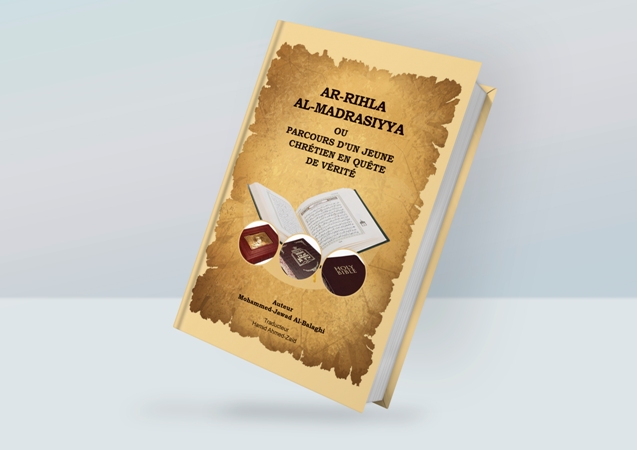
The book “AR-RIHLA AL-MADRASIYYA” by late Mohammad Javad Al-Belaqi, is translated by Hamid Ahmad Zayed into French in 494 pages and single volume. The AhlulBayt (a.s.) World Assembly Publications has published this book in medium octavo size and made it available to those who are interested.
“Al-Fusul al-Mahma fi Talif al-Ummah” / French
In the book “Al-Fusul al-Mahma fi Talif al-Ummah”, while examining the beliefs of Shiites in various fields and trying to resolve many conflicts between Shiites and Sunnis, the author seeks to give an overview of the issue of Islamic Unity. According to him, one of the main causes of division among Islamic denominations is the lack of proper understanding of each other’s beliefs and the lack of attention to many commonalities. Therefore, in his research, he has tried to approach his goal by raising unifying issues, including: the meaning of Islam and faith, the sanctity of Muslims after saying Shahadatain, the salvation of all monotheists, referring to the fatwas of the past on the final salvation of those who say the Shahadatain, the conflicts over some of the some incorrect interpretations of the past, and the explanation of their malice, and the presentation of an analysis of divisiveness throughout history.
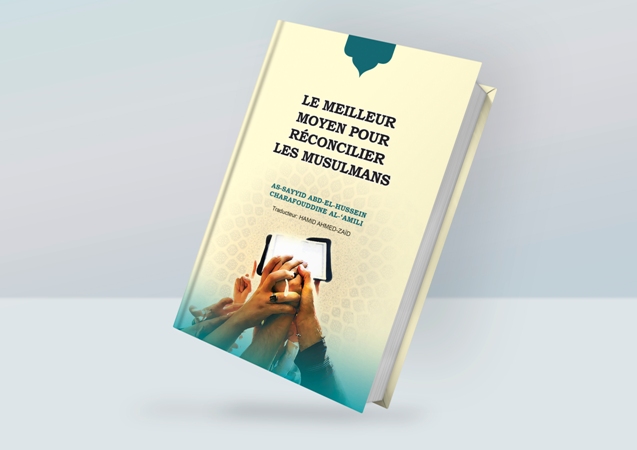
The book “Al-Fusul al-Mahma fi Talif al-Ummah” by Sayed Abdulhussain Sharafuddin Al-Ameli, is translated by Hamid Ahmad Zayed into French in 318 pages and single volume. The AhlulBayt (a.s.) World Assembly Publications has published this book in crown octavo size and made it available to those who are interested.
“Prayer, the Ascension of the Believer” / Hindi
The main audience of the book “Prayer, the Ascension of the Believer” is people who have just reached the age Sharia puberty and are required to perform obligatory religious obligations. By illustration, the author has tried to teach the prayer, the preliminaries, the conditions, the rules, the dhikrs and the Mubtilat (things that break the prayer) in a simple way. This little book begins by naming the Osul al-Din and Foru al-Din (principles sub-principles of Islam), and the preliminaries of prayer, and then deals with the subject of Taharah (purity based on Islamic Rules). It also states the conditions of correctness, quality and Mubtilat of Wozu (ablution), and then how to perform Tayammum, the time when Tayammum becomes obligatory, the things with which Tayammum is correct, and the conditions of correctness and Mubtilat of Tayammum. Following that, the conditions of the worshiper’s clothes, the times of the prayers, the qibla, Azan (the call to prayer) and the Iqamah, the quality of the prayers, the duties, and pillars of the prayers, Mubtilat, and the correct doubts in the prayers are explained.

The book “Prayer, the Ascension of the Believer” by Mr. Mustafa Qusayr, is translated by Mr. Qamar Abbas Al-e Hassan into Hindi in 75 pages and single volume. The AhlulBayt (a.s.) World Assembly Publications has published this book in crown octavo size and made it available to those who are interested.
“Al-Islam Manhaj Mashreq Lel-Hayat” / Hindi
The book “Al-Islam Manhaj Mashreq Lel-Hayat” describes the programs and instructions of Islam for human development. The author considers Islam as a comprehensive system with a plan for all aspects of human personality that has not neglected any aspect of his personal, social, physical, and spiritual life. According to him, from the Islamic point of view, man has a unique status to the extent that he has been called God’s successor on earth. In this book, the teachings of the Quran and hadiths have been collected and presented on topics such as: human dignity, birth and upbringing, physical health, proper food and drink, sexual needs, speech and behavior, how to interact with friends, neighbors and relatives, good morals, economics, and death.
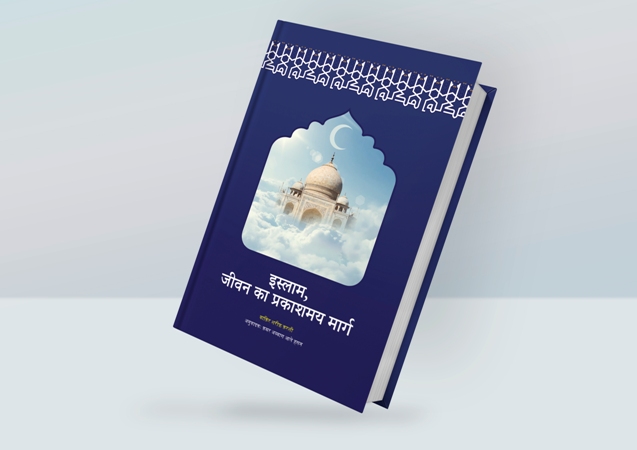
The book “Al-Islam Manhaj Mashreq Lel-Hayat” by Baqer Sharif Qarashi, is translated by Mr. Qamar Abbas Al-e Hassan into Hindi in 239 pages and single volume. The AhlulBayt (a.s.) World Assembly Publications has published this book in medium octavo size and made it available to those who are interested.
“Hokm Qesar Nahj Al-Balagha” / Hindi
In the book “Hokm Qesar Nahj Al-Balagha”, the author has selected 370 wise short sentences from the short words of Nahj Al-Balaghah and presented them to the readers. The contents of the book include human messages from Imam Ali (a.s.) and the author intends to introduce his human personality and high human thought, in addition to informing the human conscience with the help of the simple expression of that Imam. The hadiths included in the book are given along with their original Arabic text and include topics such as: the value of Basirat (insight), the ugliness of greed, avarice, and fear, the beauty of patience, asceticism, piety, and charity, seizing opportunities, social etiquettes, value of the knowledge, behavior, and wise speech, chastity, and Wisdom.
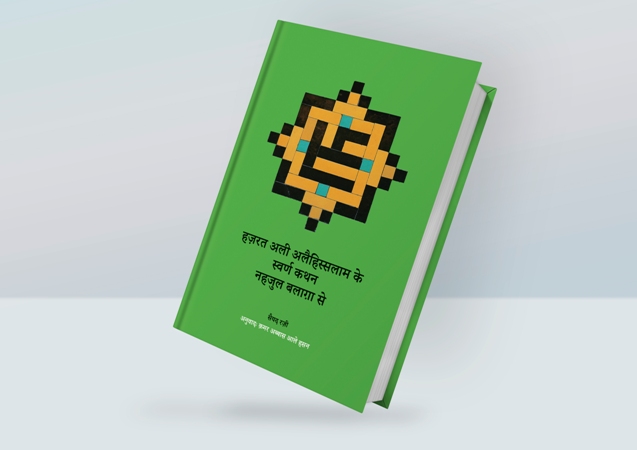
The book “Hokm Qesar Nahj Al-Balagha” by Sayed Sharif Razi, is translated by Mr. Qamar Abbas Al-e Hassan into Hindi in 138 pages and single volume. The AhlulBayt (a.s.) World Assembly Publications has published this book in crown octavo size and made it available to those who are interested.
“Islamic Revolution, Principles and Characteristics” / Hausa language
The book “Islamic Revolution, Principles and Characteristics” examines and analyzes different dimensions, different periods, the contexts, and consequences of the Islamic Revolution of Iran. By providing a suitable theoretical framework for the study of revolutions, the author has tried to provide readers with a general and clear picture of the context of each revolution and the causes and factors of its victory, as well as the course of developments two decades after the Islamic Revolution. In the first chapter, he examines the three elements of popular participation, the leadership of Imam Khomeini, and the dynamism of the school of Islam. In the second chapter, the course of developments and events after the Islamic Revolution in two parts: a. The events of the first decade and the period of the presence of Imam Khomeini and b. The analysis of the developments related to the second decade has been included in three levels: national, regional, and international. The third chapter is dedicated to comparing the Islamic Revolution with the French and Russian revolutions, their salient features, based on historical documents. And the final chapter briefly deals with the threats facing the Islamic Revolution.
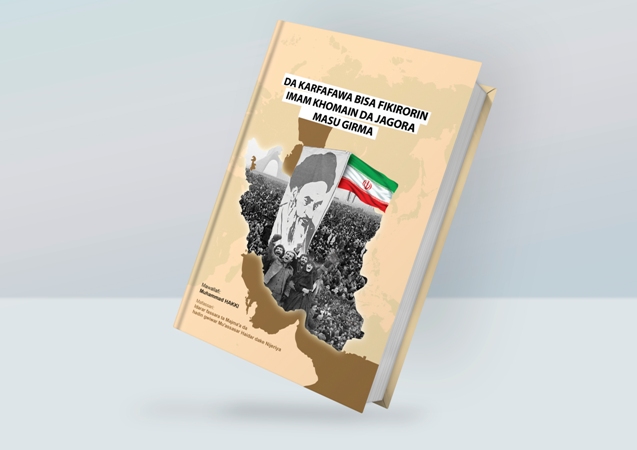
The book Islamic Revolution, Principles and Characteristics” by Mohammad Haqi, is translated by Translation Office of the AhlulBayt (a.s.) World Assembly, and the Haidar Institute of Nigeria into Hausa language in 213 pages and single volume. The AhlulBayt (a.s.) World Assembly Publications has published this book in medium octavo size and made it available to those who are interested.
“Prayer, the Ascension of the Believer” / Hausa language
The main audience of the book “Prayer, the Ascension of the Believer” is people who have just reached the age Sharia puberty and are required to perform obligatory religious obligations. By illustration, the author has tried to teach the prayer, the preliminaries, the conditions, the rules, the dhikrs and the Mubtilat (things that break the prayer) in a simple way. This little book begins by naming the Osul al-Din and Foru al-Din (principles sub-principles of Islam), and the preliminaries of prayer, and then deals with the subject of Taharah (purity based on Islamic Rules). It also states the conditions of correctness, quality and Mubtilat of Wozu (ablution), and then how to perform Tayammum, the time when Tayammum becomes obligatory, the things with which Tayammum is correct, and the conditions of correctness and Mubtilat of Tayammum. Following that, the conditions of the worshiper’s clothes, the times of the prayers, the qibla, Azan (the call to prayer) and the Iqamah, the quality of the prayers, the duties, and pillars of the prayers, Mubtilat, and the correct doubts in the prayers are explained.
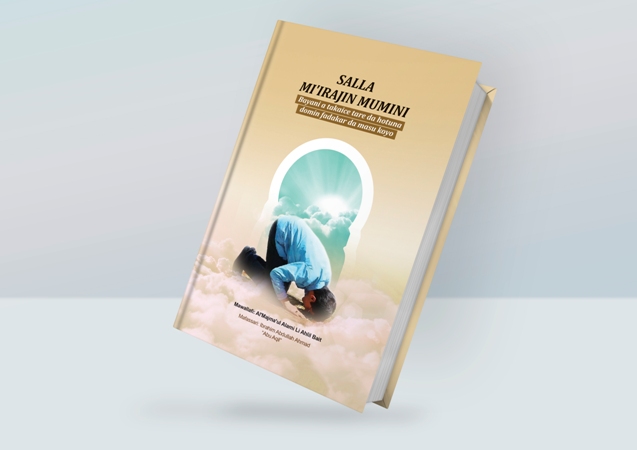
The book “Prayer, the Ascension of the Believer” by Mr. Mustafa Qusayr, is translated by Mr. Ebrahim Abdullah Ahmad into Hausa language in 85 pages and single volume. The AhlulBayt (a.s.) World Assembly Publications has published this book in crown octavo size and made it available to those who are interested.
“Immunity of the Quran from distortion” / Norwegian
The book “Immunity of the Quran from distortion” has been written with confirmation and emphasis on the immunity of the Holy Quran from distortion. According to the author, the hadith and historical evidence show that these factors prevented the Quran from being distorted: the Prophet Muhammad (p.b.u.h) paid special attention to the writing and collecting of the Quranic verses, his oversight of how memorizers memorized the Quran, the efforts of two sheikhs to collect and protect the Quran and the special attention of the Islamic Ummah to the Quran as a constitution and the main source of culture, politics and beliefs of Muslims. The author believes that all Twelver Shiite scholars, following the school of AhlulBayt (a.s.), and the majority of Sunni scholars, believe that even the narrations narrated about the distortion in the Quran are fake and unreliable from various. According to the author, in most cases, the emphasis on distortion is only for making divisions among Islamic denominations.
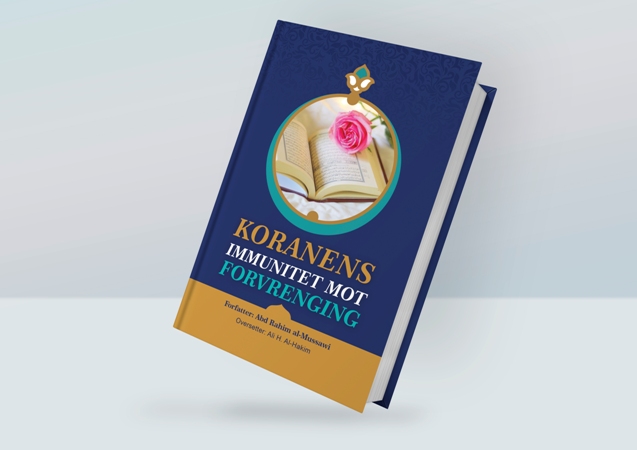
The book “Immunity of the Quran from distortion” by Sayed Abdurrahim Mousawi, is translated by Mr. Ali Al-Hakim Norwegian in 92 pages and single volume. The AhlulBayt (a.s.) World Assembly Publications has published this book in crown octavo size and made it available to those who are interested.
“Ali, Maeda al-Kitab wa al-Sunnah” / Pashto
The book “Ali, Maeda al-Kitab wa al-Sunnah” examines some of the controversial issues between Shiites and Sunnis in doctrinal issues. In this book, citing credible Sunni hadith and Tafsir sources, and the reasons accepted by both groups, the author has tried to carefully defend the sanctity of the Shiite school, and answer some of the Sunni critics to the Shiite intellectual beliefs. He also intends to take a step towards explaining the teachings of the AhlulBayt (a.s.) school and understanding the true Islam with this research. The topics discussed in this book are: Crying for the Dead, Commemorating the Prophets and the Righteous people, The Quality of Salawat, Justice of the Companions, The Verse of Purification, The Twelve Imams, Collecting the Quran, Bada' (the Will of God), Temporary Marriage, Fate and Free Will, Delegation, Qada (Decree) and Qadar (Destiny), Attributes of God, Infallibility of the Prophets, Resource in the Prophet, and seeking blessing from their remains and belongings, Shiites of the AhlulBayt (a.s.), Reconstruction of the tombs of the prophets, Imam Ali in the Quran and the history of hadith.
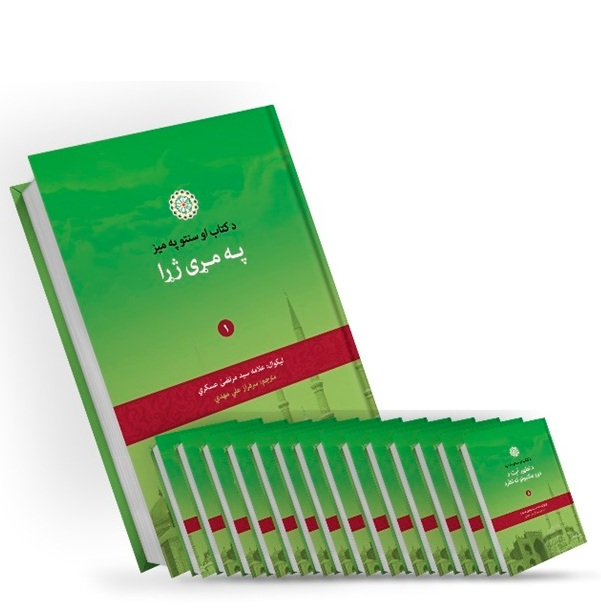
The book “Ali, Maeda al-Kitab wa al-Sunnah” by Sayed Morteza Askari, is translated by Mr. Sarafraz Ali Mahdi into Pashto in 1144 pages and 17 volumes. The AhlulBayt (a.s.) World Assembly Publications has published this book in eighteenmo size and made it available to those who are interested.
“Prayer, the Ascension of the Believer” / Pashto
The main audience of the book “Prayer, the Ascension of the Believer” is people who have just reached the age Sharia puberty and are required to perform obligatory religious obligations. By illustration, the author has tried to teach the prayer, the preliminaries, the conditions, the rules, the dhikrs and the Mubtilat (things that break the prayer) in a simple way. This little book begins by naming the Osul al-Din and Foru al-Din (principles and sub-principles of Islam), and the preliminaries of prayer, and then deals with the subject of Taharah (purity based on Islamic Rules). It also states the conditions of correctness, quality and Mubtilat of Wozu (ablution), and then how to perform Tayammum, the time when Tayammum becomes obligatory, the things with which Tayammum is correct, and the conditions of correctness and Mubtilat of Tayammum. Following that, the conditions of the worshiper’s clothes, the times of the prayers, the qibla, Azan (the call to prayer) and the Iqamah, the quality of the prayers, the duties, and pillars of the prayers, Mubtilat, and the correct doubts in the prayers are explained.
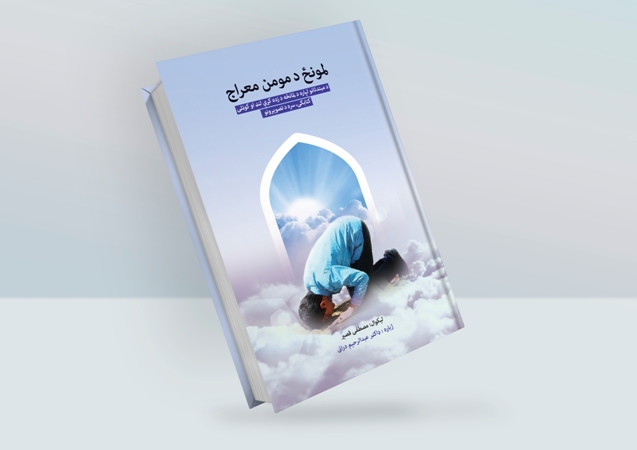
The book “Prayer, the Ascension of the Believer” by Mr. Mustafa Qusayr, is translated by Dr. Abdurrahman Darani into Pashto in 68 pages and single volume. The AhlulBayt (a.s.) World Assembly Publications has published this book in crown octavo size and made it available to those who are interested.
“Velayat of Imam Ali (a.s.) in the Quran and the Sunnah of the Prophet Muhammad (p.b.u.h)” / Pashto
Citing some Quranic verses, Shiite and Sunni books hadith books, the book “Velayat of Imam Ali (a.s.) in the Quran and the Sunnah of the Prophet Muhammad (p.b.u.h)” explains and examines the role and position of Imam Ali (a.s.), and his Velayat (and the Imams succeeding him). The topics of the book are: Letters of some Sunni scholars who converted to Shia”, “Why the issue of Imamate is not mentioned in the Quran?”, “Why the name of Ali is not mentioned in the Quran?”, “Preservation and implementation of the Sharia by the successors of the Prophet (p.b.u.h)”, “The position of the Imam Mahdi (a.s.) in the sources of the caliphs’ school”, and many other unanswered questions.
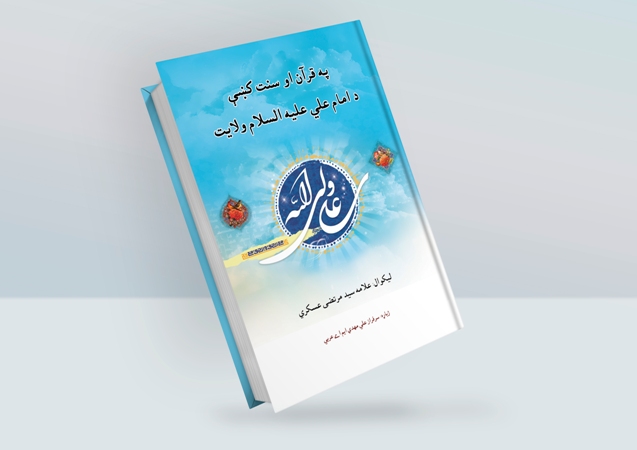
The book “Velayat of Imam Ali (a.s.) in the Quran and the Sunnah of the Prophet Muhammad (p.b.u.h)” by Allameh Sayed Morteza Askari, is translated by Mr. Sarafraz Ali Mahdi into Pashto in 122 pages and single volume. The AhlulBayt (a.s.) World Assembly Publications has published this book in octodecimo size and made it available to those who are interested.
“Islam Yaqud Al-Hayat” / Portuguese
In the book “Islam Yaqud Al-Hayat”, believing in the need to revive Islamic sovereignty in all areas of society management, and trying to show Islamic teachings more successful and comprehensive than human theories in all areas, including government and economics, the author has tried to explain the duties and responsibilities of Muslims towards this perfect divine religion. In the following, the author has considered the purpose of forming an Islamic government to give unparalleled value to human beings and to establish the Velayat sovereignty of the prophets over the world.

The book “Islam Yaqud Al-Hayat” by Ayatollah Sayed Mohammad Baqer Sadr, is translated by Mr. Esmail Ahmad Barbousa into Portuguese in 122 pages and single volume. The AhlulBayt (a.s.) World Assembly Publications has published this book in crown octavo size and made it available to those who are interested.
“Charter of Twelver Beliefs” / Russian
In the book “Charter of Twelver Beliefs”, aiming to briefly introduce Shiite beliefs the author intends to briefly and explicitly express Shiite beliefs by avoiding complex arguments and issues. He has tried to introduce what are considered as general issues of Shiite beliefs by dividing Shiite intellectual and doctrinal issues into ten issues: ways to reach knowledge in Islam, Tawhid (monotheism) and its levels, the attributes of God, divine justice, the reasons for the necessity of the of the prophets’ prophethood, special prophecy, Imamate and caliphate, the world after death, faith and disbelief, heresy, Taqiya (hiding the real belief) and Recourse, and finally, hadith, ijtihad and Emulation. In the end, he pointed out the differences in the field of Shiite and Sunni jurisprudential issues in nine principles: the quality of Wuzu (ablution), Sujud (prostration) on the ground, performing each of prayers without break between them, temporary marriage, Takatof (clasping the hands while praying), Taraweeh prayer, the obligation of Khums, Islamic civilization and unity.
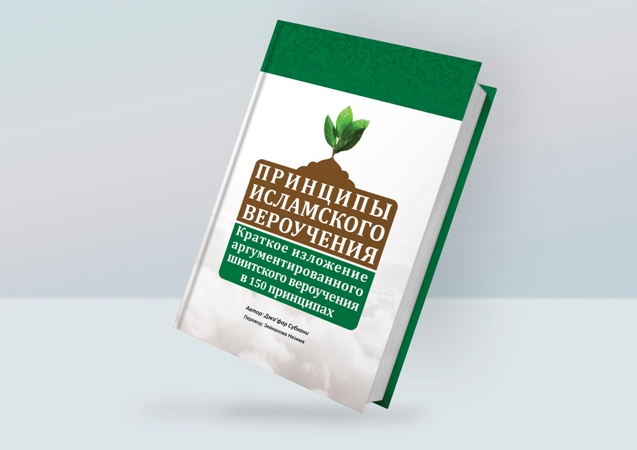
The book “Charter of Twelver Beliefs” by Ayatollah Jafar Sobhani, is translated by Mr. Nazem Zeynalev into Russian in 351 pages and single volume. The AhlulBayt (a.s.) World Assembly Publications has published this book in medium octavo size and made it available to those who are interested.
“Ali (a.s.) Mizan Al-Haq” / Swahili
The book “Ali (a.s.) Mizan Al-Haq” is a research based on hadiths in proving the unique characteristics of Imam Ali (a.s.) compared to the other companions of the Prophet Muhammad (p.b.u.h). The author has considered the companions of the Prophet Muhammad (p.b.u.h) as three kinds of sincere, hypocrites and ordinary people, and described having a criterion for recognizing people in these three categories as a vital issue in understanding Islam. Therefore, in his book, he has tried to show Imam Ali (a.s.) as the main criterion of this recognizing based on the Quranic verses, the hadiths of the Prophet, and the Shiite and Sunni Hadith and Tafsir sources. Some of the axes that he has used in his research and through which he has sought to achieve his goal are as follows: Distinguishing the believer from the hypocrites; knowing the friend of God from the enemy of God; introducing Imam Ali (a.s.) as a person to whom insulting is like insulting God and His Prophet; and a person who is completely obedient to God; Distinguishing right from wrong; One who enlightens the divine revelation after the Prophet Muhammad (p.b.u.h) and is directly related to the revelation; One to whom looking is considered worship; and whose value is higher than the Kaaba.

The book “Ali (a.s.) Mizan Al-Haq” by Sheikh Mohammad Quzal Al-Amedi, is translated by Mr. Abdulmajed Naser into Swahili in 792 pages and single volume. The AhlulBayt (a.s.) World Assembly Publications has published this book in medium octavo size and made it available to those who are interested.
“Fragrances, A biography of the Imams of the AhlulBayt (a.s.)”/ Swahili
The book describes some of the attributes and virtues of the Infallible Imams (a.s.). In each of the twelve chapters of the book, the author has examined the personal characteristics, moral virtues, and social life of one of the Imams (a.s.). The author describes those nobles as exemplary and unique human beings and considers all of them to have the attributes of selflessness, self-sacrifice, asceticism, humility, helping the poor and weak in society, and disseminating sciences and knowledge. The birth, titles, moral virtues, social services, wise words, and the manner of martyrdom of each of the Imams (a.s.) are also stated in this book. The author has presented the chapter related to Imam Ali (a.s.) in detail, and in it, he mentions the era of Imamate of Imam Ali (a.s.), his position with the Prophet Muhammad (p.b.u.h), his status in the Resurrection, and his positive effects on progress of the mission of Prophet Muhammad (p.b.u.h).
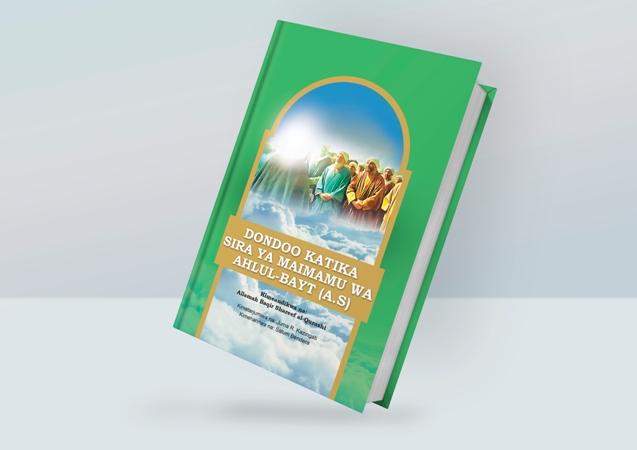
The book “Fragrances, A biography of the Imams of the AhlulBayt (a.s.)” is written by late Allameh Baqer Sharif Al-Qarashi (r.a.) and has been translated by Mr. Jom’e Ramazan Kazingati in Swahili in one volume and 482 pages. The AhlulBayt (a.s.) World Assembly Publications has published the book in medium octavo size and made it available to those who are interested.
“The Saqifah Conspiracy” / Swahili
In his book, the author analyzes and explains the Muslim dispute over the succession of the Prophet Muhammad (p.b.u.h) after his demise, and briefly reviews the events of the beginning of Islam. In this book, the general atmosphere of the origin of Islam among the Quraysh tribe, Hejaz region, is first described, and the main enemies of Islam are introduced. The position of the Caliphate in Islam is the first issue that the author has addressed, and he has considered the Caliphate as one of the necessities of Islam and emphasized by the Prophet Muhammad (p.b.u.h). Also in this section, the author has discussed the issue of appointing Imam Ali (a.s.) as a successor by the Prophet Muhammad (p.b.u.h). Next, the book examined the caliphate in the Quran and Sunnah. The great support of the Prophet Muhammad (p.b.u.h) about the succession of Imam Ali (a.s.), and the confrontation with the dangers that will befall the Islamic Ummah in the society after his demise, and references to the last days of the life of the Prophet Muhammad (p.b.u.h) are the next contents of the book. The book concludes with a detailed account of the Saqifah incident and examines the role and performance of proponents and opponents, as well as a look at its consequences.
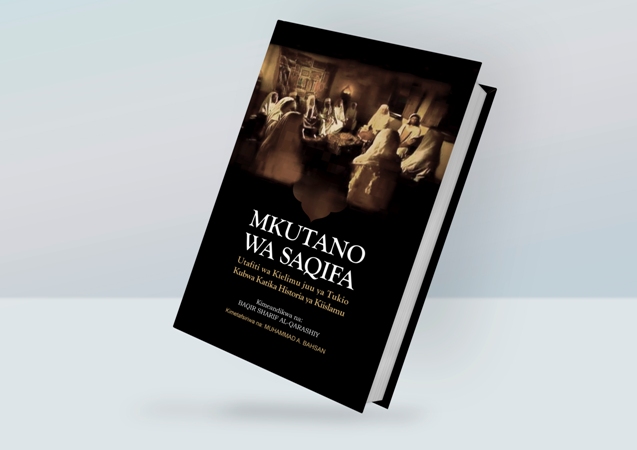
The book “The Saqifah Conspiracy” is written by late Allameh Baqer Sharif Al-Qarashi (r.a.) and has been translated by Mr. Mohammad Ali Abdurrahman in Swahili in one volume and 242 pages. The AhlulBayt (a.s.) World Assembly Publications has published the book in medium octavo size and made it available to those who are interested.
“Prayer, the Ascension of the Believer” / Swahili
The main audience of the book “Prayer, the Ascension of the Believer” is people who have just reached the age Sharia puberty and are required to perform obligatory religious obligations. By illustration, the author has tried to teach the prayer, the preliminaries, the conditions, the rules, the dhikrs and the Mubtilat (things that break the prayer) in a simple way. This little book begins by naming the Osul al-Din and Foru al-Din (principles sub-principles of Islam), and the preliminaries of prayer, and then deals with the subject of Taharah (purity based on Islamic Rules). It also states the conditions of correctness, quality and Mubtilat of Wozu (ablution), and then how to perform Tayammum, the time when Tayammum becomes obligatory, the things with which Tayammum is correct, and the conditions of correctness and Mubtilat of Tayammum. Following that, the conditions of the worshiper’s clothes, the times of the prayers, the qibla, Azan (the call to prayer) and the Iqamah, the quality of the prayers, the duties, and pillars of the prayers, Mubtilat, and the correct doubts in the prayers are explained.

The book “Prayer, the Ascension of the Believer” by Mr. Mustafa Qusayr, is translated by Mr. Salum Bandira Makuki into Swahili in 89 pages and single volume. The AhlulBayt (a.s.) World Assembly Publications has published this book in crown octavo size and made it available to those who are interested.
“Al-Islam Manhaj Mashreq Lel-Hayat” / Swahili
The book “Al-Islam Manhaj Mashreq Lel-Hayat” describes the programs and instructions of Islam for human development. The author considers Islam as a comprehensive system with a plan for all aspects of human personality that has not neglected any aspect of his personal, social, physical, and spiritual life. According to him, from the Islamic point of view, man has a unique status to the extent that he has been called God’s successor on earth. In this book, the teachings of the Quran and hadiths have been collected and presented on topics such as: human dignity, birth and upbringing, physical health, proper food and drink, sexual needs, speech and behavior, how to interact with friends, neighbors and relatives, good morals, economics, and death.
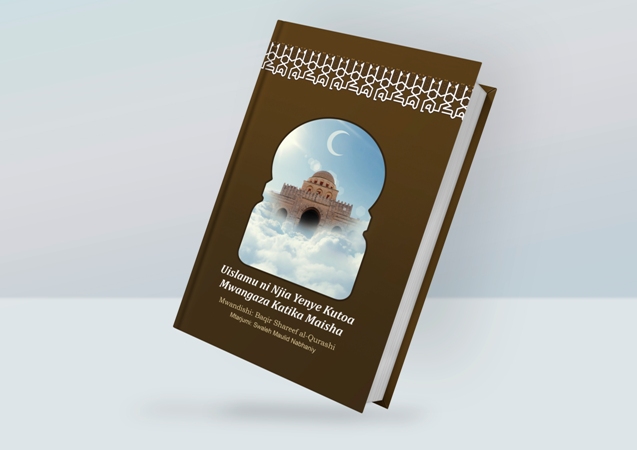
The book “Al-Islam Manhaj Mashreq Lel-Hayat” by late Ayatollah Baqer Sharif Qarashi (r.a.), is translated by Mr. Saleh Muled into Swahili in 376 pages and single volume. The AhlulBayt (a.s.) World Assembly Publications has published this book in crown octavo size and made it available to those who are interested.
“Ethics of the Prophet (p.b.u.h) and his AhlulBayt (a.s.)” / Swahili
The book “Ethics of the Prophet (p.b.u.h) and his AhlulBayt (a.s.)” examines some aspects of the moral virtues of the Prophet Muhammad (p.b.u.h) and his AhlulBayt (p.b.u.h). In this book, in fourteen separate chapters, the author focuses on each of the Infallibles (a.s.) and examines the salient moral and behavioral characteristics of those nobles, and he has tried to acquaint readers with this aspect of their personality. The author has sought to achieve his goal by using the enlightening words of the AhlulBayt (a.s.), their behavior towards friends, and their positions towards opponents, and the descriptions of others about them. Also, patience, piety, asceticism, guidance, munificence, opposition to ignorance and stinginess, and kindness to friend and foe, have been introduced as the most prominent common moral characteristics among these pure lights.
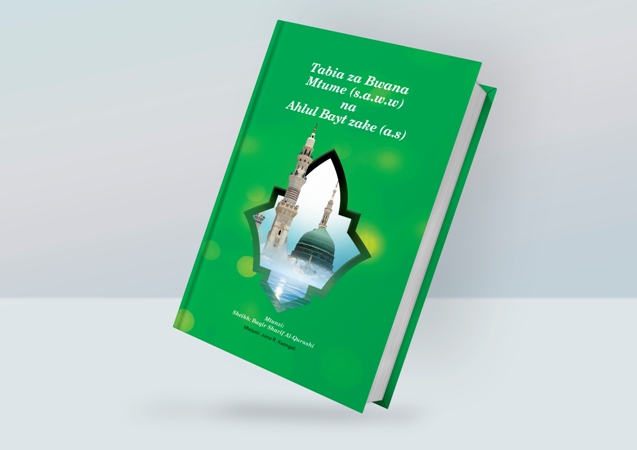
The book “Ethics of the Prophet (p.b.u.h) and his AhlulBayt (a.s.)” by late Ayatollah Baqer Sharif Qarashi (r.a.), is translated by Mr. Jom’e Ramazani Kazingati into Swahili in 343 pages and single volume. The AhlulBayt (a.s.) World Assembly Publications has published this book in medium octavo size and made it available to those who are interested.
“The Perfect Model: A Look at the Moral Behavior of the Prophet (p.b.u.h)” / Tajik
The book “The Perfect Model: A Look at the Moral Behavior of the Prophet (p.b.u.h)” briefly examines the moral character of the Holy Prophet of Islam. According to the author, human nature is influenced by others, and this influence plays an important role in his individual and social upbringing. The Holy Quran, in its educational methods, has made great efforts to introduce prominent and distinguished people as role models. Meanwhile, in this Holy book, the Great Prophet has been named as the supreme example in all ages. In this regard, the author has tried to provide his audience with the moral characteristics of the Prophet Muhammad (p.b.u.h), inspired by the valuable treasure of the hadiths of that noble man. He first mentions his high spiritual authorities under several titles, including: the supreme creature, the first creature, the vast mercy, and the great infallibility; and then he has enumerated and explained some of the most prominent virtues in his practical life.
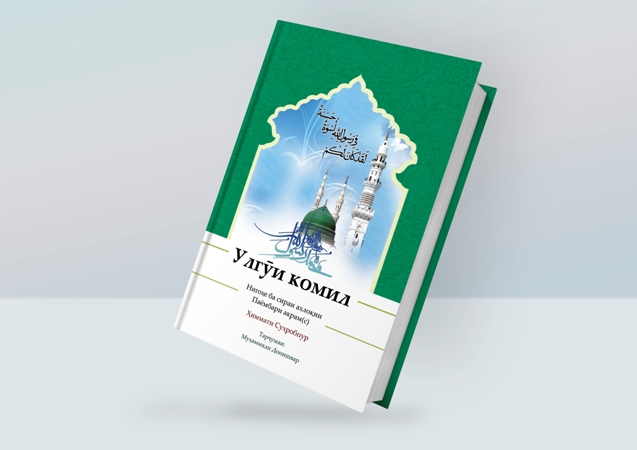
The book “The Perfect Model: A Look at the Moral Behavior of the Prophet (p.b.u.h)” by Hemmat Sohrabpour, is translated by Mr. Mohammad Daneshvar into Tajik in 113 pages and single volume. The AhlulBayt (a.s.) World Assembly Publications has published this book in crown octavo size and made it available to those who are interested.
“Hypocrisy” / Tajik
The book “Hypocrisy” is about recognizing the meaning of hypocrisy, the characteristics of hypocrites, and the ways of dealing with them from the perspective of the Quran and hadiths. The contents of the book are presented in six chapters. In the first chapter, the necessity of recognizing hypocrisy, its lexical and idiomatic meaning, and the history of the formation of hypocrisy in Islam are examined. In the second chapter, the political characteristics of the hypocrites are discussed and divided into three types of relations with foreigners, actions against Velayat, and other characteristics. In the third, fourth and fifth chapters, the personal and psychological, cultural and social characteristics of the hypocrites and in the final chapter, the ways to deal with them are analyzed and evaluated.

The book “The Perfect Model: A Look at the Moral Behavior of the Prophet (p.b.u.h)” by Sayed Ahmad Khatami, is translated by Mr. Mohammad Allah Khoshbakht into Tajik in 204 pages and single volume. The AhlulBayt (a.s.) World Assembly Publications has published this book in crown octavo size and made it available to those who are interested.
“A Study of the Fundamental Themes of Imamate” / Tajik
This book has four chapters in which the necessity of existence, conditions, attributes, and quality of choosing an Imam are examined: In the first chapter, issues such as: the definition of Imamate, the origin of Shiism, Imamate in the Quran, Ulol al-Amr, and the Wali al-Amr, in Hadiths are examined. In the second chapter, the specific prophecy argument (Borhan al-Nobowah al-Khasah), and the rational and narrative reasons of Imamate are discussed. In the third chapter, the reasons for the Imam’s infallibility from the points of views of intellect, hadith, and the Quran (study of the verse of purification) have been scrutinized. In the fourth chapter, the subject of Imam’s knowledge is explored, in which the following topics are examined: knowledge of the Ahkam, sources of knowledge of Imams (a.s.), difference between Imam and Prophet, knowledge of the unseen, news of Imams (a.s.) of the unseen, limits of knowledge of the unseen, the miracle, the superiority of the Imam, and the way he was chosen.
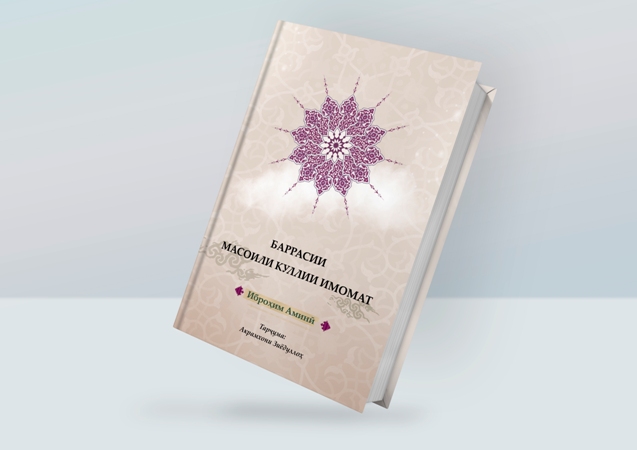
The book “A Study of the Fundamental Themes of Imamate” is written by late Ayatollah Ebrahim Amini (r.a.) and has been translated by Mr. Akram Khan Ziadallahev in Tajik in one volume and 324 pages. The AhlulBayt (a.s.) World Assembly Publications has published the book in medium octavo size and made it available to those who are interested.
“Al-Muntaqi min Kitab Sonan al-Nabi” / Tajik
According to the author, the prophetic tradition, the effort to understand it, and the religious order to follow it, is a subject that has always been agreed upon among all Islamic denominations. According to him, being like Prophet Muhammad (p.b.u.h) in conduct and ethics and trying to be characterized by the appearance of his noble deeds is a great goal and the ultimate perfection. Therefore, in his book, he has tried to collect the cases mentioned in the hadith sources about the behavior of the Prophet in various areas of personal and social life and provide them to the audience.
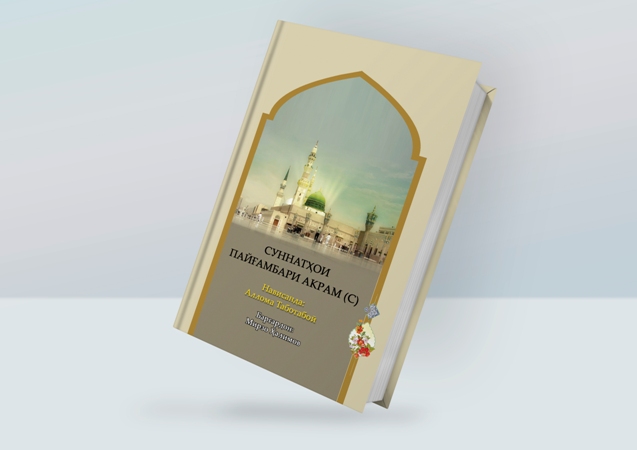
The book “Al-Muntaqi min Kitab Sonan al-Nabi” by late Allameh Mohammad Hossein Tabatabai (r.a.), is translated by Mr. Mirza Halimev in Tajik in one volume and 219 pages. The AhlulBayt (a.s.) World Assembly Publications has published the book in crown octavo size and made it available to those who are interested.
“114 Tips about Prayer” / Tajik
In his book, the author intends to collect verses from the Holy Quran and the hadiths of the Infallibles (a.s.) about prayer and provide them to the readers by adding brief explanations below each one. Based on the points given in this book, the special attention of the AhlulBayt (a.s.) to this divine duty, and their recommendations for respecting its dignity, especially towards performing it as soon as the call for prayer is given, indicate the uniqueness of this worship and its high position in the holy Shariah of Islam.
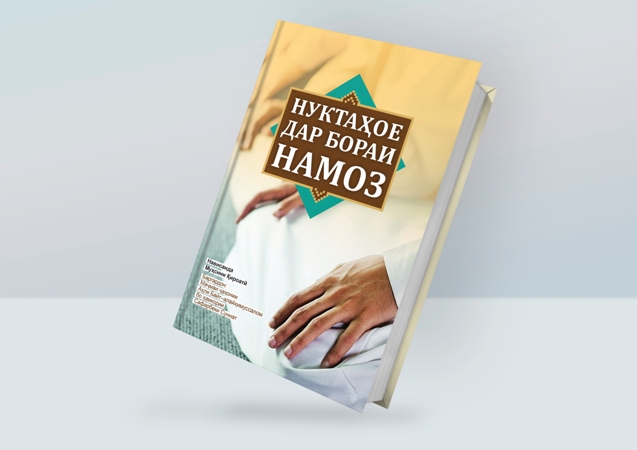
The book “114 Tips about Prayer” by Hojat al-Islam Mohsen Qeraati, is translated by Mr. Safar Beik Sonnat in Tajik in one volume and 106 pages. The AhlulBayt (a.s.) World Assembly Publications has published the book in crown octavo size and made it available to those who are interested.
“Journey to the Friend’s Land” / Turkish
Explanation of the Hadith of Ascension, the book “Journey to the Friend’s Land” is the result of the ethics sessions of the late Ayatollah Mohammad Taqi Mesbah Yazdi (r.a.), in the seminary of Qom. With the focus on the Hadith of Ascension, the moral points and advice that result from it have been provided in this book to those who are interested. The contents of the book are presented in twenty lessons, the main topics of which are: the position of acceptance (of Decree and Destiny) and Tawakkul (Trust in God), the status of Tawakkul and acceptance of divine Decree and Destiny, divine love and the way to reach it, the characteristics of divine saints, the characteristics of heavenly people, the result of hunger and silence, the need to pay attention to prayer and understand the presence of God, the privileges of divine saints, disobedience to carnal desires, condemnation of the mundane world and the materialists, attributes of the people in Hereafter, status and knowledge of ascetics, success in divine test, and special blessings of God.
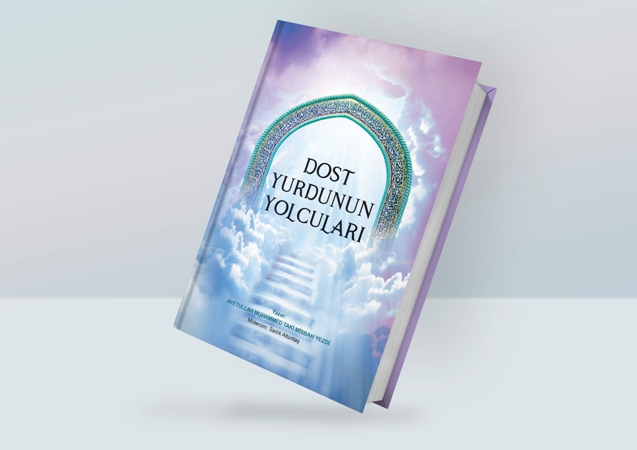
The book “Journey to the Friend’s Land” by Late Ayatollah Mohammad Taqi Mesbah Yazdi (r.a.), is translated by Mr. Sadeq Eltuntash in Turkish in one volume and 270 pages. The AhlulBayt (a.s.) World Assembly Publications has published the book in medium octavo size and made it available to those who are interested.
“Al-Khitab Al-Husseini” / Turkish
The book “Al-Khitab Al-Husseini” is an analysis of the importance and position of lecturing on the movement of Imam Hussain (a.s.) in maintaining and developing the goals of that Imam. According to the author, the revolution of Imam Hussain (a.s.) has three stages of Martyrdom, Lecturing and Revenge. He considers the stage of martyrdom to be over and considers the fulfillment of the stage of revenge to be complete at the time of the Reappearance of Imam Mahdi (a.s.). In his book the author’s attempt has been explaining the different parts of the second phase of Imam Hussain’s (a.s.) movement - that is, the Lecturing. According to him, the stage of lecturing and propaganda for the purposes of that Imam has started from the moment the caravan of Karbala prisoners arrived in Kufa and Lady Zainab (a.s.) delivered a speech. To this end, in the first part of the book, the author mentions the speeches of Lady Zainab (a.s.), Fatemeh daughter of Imam Hussain (a.s.), Umm Kulthum, and Imam Sajjad (a.s.) among the people of Kufa, as well as the events inside the palace of Ibn Ziad, which, in the end, led to his denial of involvement in the martyrdom of Imam Hussain (a.s.). In the second part he describes the events of the Levant, and in the third chapter he describes the events of Medina.
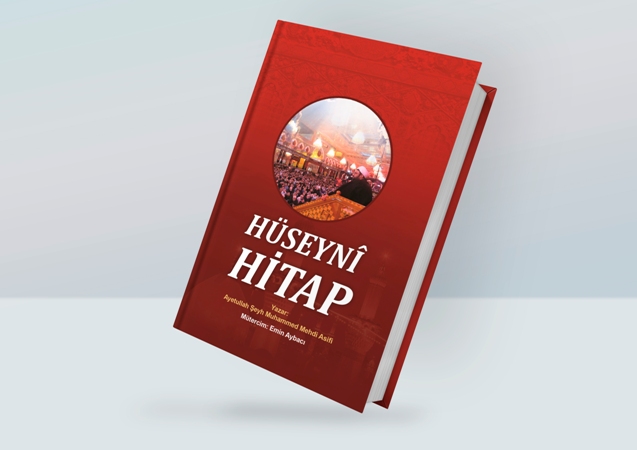
The book “Al-Khitab Al-Husseini” by Late Ayatollah Mohammad Mahdi Asefi (r.a.), is translated by Mr. Amin Aibaji in Turkish in one volume and 213 pages. The AhlulBayt (a.s.) World Assembly Publications has published the book in crown octavo size and made it available to those who are interested.
“Shiite beliefs” / Turkish
The book “Shiite Beliefs” briefly expresses the Twelver Shiite beliefs. In his book, the author intends to give a brief overview of the Twelver Shiite intellectual frameworks, regardless of any arguments and addresses the common doubts, accusations, and differences between the various Islamic denominations. He has raised forty different topics, including: Why are the followers of this religion called Jafari, Population and location of Shiites in the world, The historical position of Shiites in Islam, Shiites’ belief in God, the Quran and the Companions, and their view on the issue of caliphate and Imamate after the Prophet Muhammad (p.b.u.h) and their following of the infallible Imams (a.s.). In this way, he has tried to examine the differences between Shiite beliefs and the beliefs of other Islamic denominations.
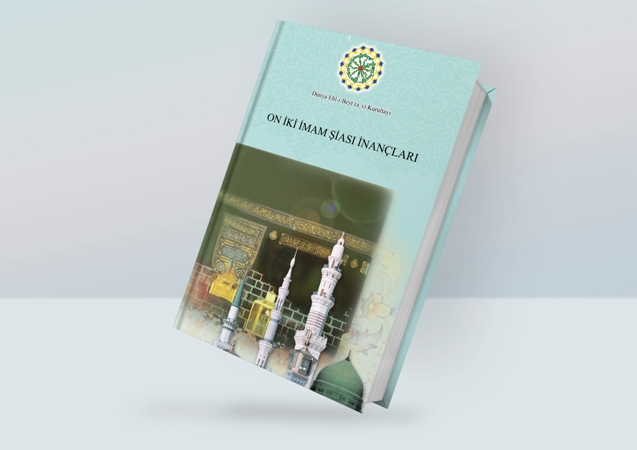
The book “Shiite Beliefs” by Ayatollah Jafar Al-Hadi, is translated by Mr. Jafarbandi Darya into Turkish in one volume and 15 pages. The AhlulBayt (a.s.) World Assembly Publications has published the book in octodecimo size and made it available to those who are interested.
“Selected Guide to Truth” / Turkish
The book “The Chosen Guide to the Truth” briefly examines some of the Twelver Shiite beliefs. The book has 9 chapters. In the first chapter the question “How the Shiites originated, spread and survived throughout history”; and in the second chapter, “Some of the Shiite beliefs that are discussed against the deviant thoughts of Wahhabism” are clarified. The position of the Quran in the eyes of the Shiites is the subject of the third chapter of the book, and in the next two chapters, various issues have been stated about the issues of Imamate and AhlulBayt (a.s.). In the sixth chapter, the issue of Mahdaviay in Islam is discussed, which issues such as the birth of the Imam Mahdi (a.s.), the cause of his Occultation, longevity and delay in his Reappearance have been scrutinized. Finally, these issues are discussed in the last three chapters of the book: Defending the Shiite view on some jurisprudential issues, examining the two historical issues of Imam Hassan’s (a.s.) peace with Muawiyah, and Umm Kulthum’s marriage to Umar ibn al-Khattab, and finally explaining the Shiite view about the Companions.

The book “Selected Guide to Truth” by Ayatollah Jafar Sobhani, is translated by Ms. Leman Dunez into Turkish in one volume and 286 pages. The AhlulBayt (a.s.) World Assembly Publications has published the book in crown octavo size and made it available to those who are interested.
“Charter of Twelver Beliefs” / Turkish
In the book “Charter of Twelver Beliefs”, aiming to briefly introduce Shiite beliefs the author intends to briefly and explicitly express Shiite beliefs by avoiding complex arguments and issues. He has tried to introduce what are considered as general issues of Shiite beliefs by dividing Shiite intellectual and doctrinal issues into ten issues: ways to reach knowledge in Islam, Tawhid (monotheism) and its levels, the attributes of God, divine justice, the reasons for the necessity of the of the prophets’ prophethood, special prophecy, Imamate and caliphate, the world after death, faith and disbelief, heresy, Taqiya (hiding the real belief) and Recourse, and finally, hadith, ijtihad and Emulation. In the end, he pointed out the differences in the field of Shiite and Sunni jurisprudential issues in nine principles: the quality of Wuzu (ablution), Sujud (prostration) on the ground, performing each of prayers without break between them, temporary marriage, Takatof (clasping the hands while praying), Taraweeh prayer, the obligation of Khums, Islamic civilization and unity.
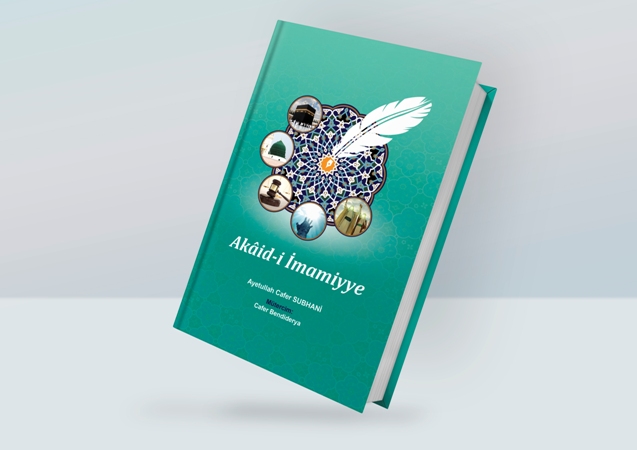
The book “Charter of Twelver Beliefs” by Ayatollah Jafar Sobhani, is translated by Mr. Jafar Bandi Darya into Turkish in 288 pages and single volume. The AhlulBayt (a.s.) World Assembly Publications has published this book in crown octavo size and made it available to those who are interested.
“Eternal Charter” / Turkish
The book “Eternal Charter” has a Quranic view on the issue of infallibility of prophets and imams (a.s.). The main essence of the topics of the book are the reasons for the infallibility of the prophets and examining the reasons of the opponents, the reasons for the infallibility of the Prophet of Islam, the status of the prophets and their formative guardianship, and finally the Imam in the Quran and the reasons for his infallibility. In this regard, the author has researched and explored the Quran on the following topics: Infallibility from the perspective of reason and the Quran, various aspects of the issue of legislative and formative guardianship, the position of the Imam in the Shiite school, analysis of opposing views and theories, study of concepts and teachings Verse of Testing (of Prophet Ebrahim Q2:124) and Verse of Purification in two areas of infallibility from sin and infallibility from disobedience, as well as the Quran’s view on the infallibility of prophets such as Adam, Noah, Joseph, Moses, Solomon, Job and Jonah
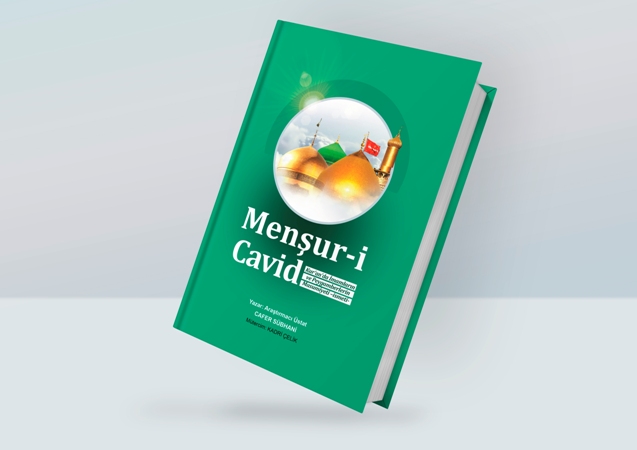
The book “Eternal Charter” by Ayatollah Jafar Sobhani, is translated by Mr. Qadri Çelic into Turkish in 412 pages and single volume. The AhlulBayt (a.s.) World Assembly Publications has published this book in medium octavo size and made it available to those who are interested.
“The Role of Imams (a.s.) in Reviving Religion”/ Turkish
In this book, the author examines the principles governing the practice of the Infallible Imams (a.s.) in reviving true Islam and protecting the tradition of the Prophet Muhamad (p.b.u.h). This book is the result of a series of lectures by the author on the subject, which is organized in the form of forty-four lessons. In this book, the author has tried to look meticulously at the following topics and issues with the method of analytical biography: introduction and comparison of the school of caliphs and AhlulBayt (a.s.), explanation of some Islamic terms, a brief overview of the tradition of the Prophet Muhammad (p.b.u.h) and its situation during the caliphs, correction of religious beliefs about knowing Imams (a.s.), a description of the history of Islamic thought in past centuries and the expression of making distortions and hadiths, expressing false virtues and actions of the hypocritical enemies of Islam and Shiism. According to him, the greatest role of Shiite Imams has been to protect the Islam from distortion and to tell the truth to the Islamic Ummah.
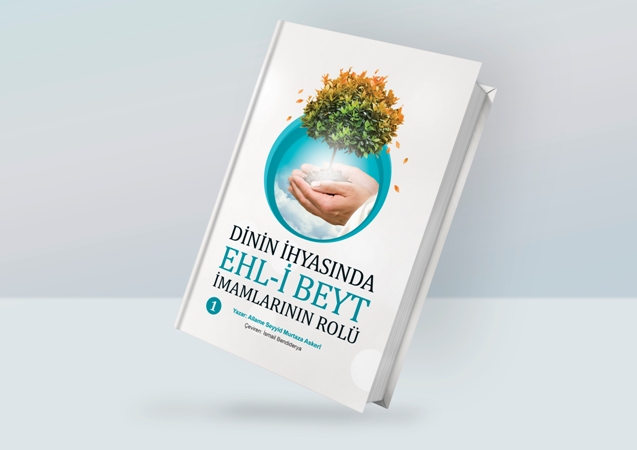
The book “The Role of Imams (a.s.) in Reviving Religion” by Late Allameh Sayed Morteza Askari (r.a.), is translated by Mr. Esmail Bandi Darya into Turkish in 629 pages and single volume. The AhlulBayt (a.s.) World Assembly Publications has published this book in medium octavo size and made it available to those who are interested.
Those who interested to buy the books in person, can refer to AhlulBayt (a.s.) World Assembly, Jomhuri Islami Boulevard, Qom, Iran; or call the number: +982532131307
One of the activities of the AhlulBayt (a.s.) World Assembly is the translation of authentic books into various languages.
One of the activities of the AhlulBayt (a.s.) World Assembly is the translation of authentic books into various languages. In this article we introduce some of these books.
“The Perfect Man”/ Bengali
In the book “The Perfect Man”, the author examines Islam’s view of the perfect man and critiques other views. In the first chapter of the book, the author discusses ways to recognize the characteristics of a perfect human being from the perspective of Islam, and the need to develop human values in order to achieve the humanity of a human being. In the following, he evaluates the point of view of some schools of thought about the perfect man, including Rationalism, Mysticism and Sufism, Power, Socialism and Existentialism. According to the author, each school of thought has paid attention to just a single part of the different dimensions of man, and despite succeeding in examining some parts of human truth, they have not been able to provide a comprehensive model for the full development of man, as offered by Islam.

The book “The Perfect Man” by martyr Ayatollah Morteza Motahari, is translated by Mr. Abulqasem Mohammad Anwar al-Kabir into Bengali in 293 pages and single volume. The AhlulBayt (a.s.) World Assembly Publications has published this book in medium octavo size and made it available to those who are interested.
“Secret of Prayer” / Bosnian
The book “Secret of Prayer” is about the importance of prayer among worships and explains some of its secrets. The author begins his book with a discussion of why and how to worship, and then briefly mentions the conditions for the correctness, acceptance, and perfection of worship, as well as the signs of its acceptance by God. Then, by giving a special place to prayer, he mentioned the performing prayer as the best thanksgiving to God. In this book, also each part of the prayer, including the preliminaries of the prayer – including purity, clothing, place, qibla and Azan (call to prayer) –, the parts of the prayer – including: Niyyah (intention), takbir, Surah Hamad, Surah Tawhid, Roku (bowing), Sojud (prostration), Tasbihat Arba’ah, Qunut, Tashahhud and Salaam –, and the recommended deeds after the prayer – such as Tasbihat Hazrat Zahra (a.s.) and Sajdah Shukr –, has been carefully considered by the author. By giving a brief interpretation of the mentioned cases, the author has pointed out their effect on training the spirit of human worship.

The book “Secret of Prayer” by Hojat al-Islam Qeraati, is translated by Mr. Sanad Ćelowić into Bosnian in 116 pages and single volume. The AhlulBayt (a.s.) World Assembly Publications has published this book in crown octavo size and made it available to those who are interested.
“Prayer, the Ascension of the Believer” / Bosnian
The main audience of the book “Prayer, the Ascension of the Believer” is people who have just reached the age Sharia puberty and are required to perform obligatory religious obligations. By illustration, the author has tried to teach the prayer, the preliminaries, the conditions, the rules, the dhikrs and the Mubtilat (things that break the prayer) in a simple way. This little book begins by naming the Osul al-Din and Foru al-Din (principles and sub-principles of Islam), and the preliminaries of prayer, and then deals with the subject of Taharah (purity based on Islamic Rules). It also states the conditions of correctness, quality and Mubtilat of Wozu (ablution), and then how to perform Tayammum, the time when Tayammum becomes obligatory, the things with which Tayammum is correct, and the conditions of correctness and Mubtilat of Tayammum. Following that, the conditions of the worshiper’s clothes, the times of the prayers, the qibla, Azan (the call to prayer) and the Iqamah, the quality of the prayers, the duties, and pillars of the prayers, Mubtilat, and the correct doubts in the prayers are explained.

The book “Prayer, the Ascension of the Believer” by Mr. Mustafa Qusayr, is translated by Mr. Hareth Yašawić into Bosnian in 87 pages and single volume. The AhlulBayt (a.s.) World Assembly Publications has published this book in crown octavo size and made it available to those who are interested.
“The Truth as it is”/ Chichewa Language
In the book “Truth as it is”, the author intends to briefly introduce the Twelver Shiite intellectual frameworks, regardless of any arguments and addresses the common doubts, accusations, and differences between different Islamic denominations. He raises forty different issues, such as: why the followers of Twelver Shiite are called Jafari, their number and place of residence in the world, their historical place in Islam, their belief in God, the Quran and the Companions, their view on the issue of caliphate and Imamate after the Prophet Muhammad (p.b.u.h), and their obedience to the Imams. In this way, he tries to examine the differences between Shiite beliefs and the beliefs of other Islamic denominations.

The book “Truth as it is” by Hojat al-Islam Jfar Al-Hadi, is translated by Mr. Khamis Saeed into Chichewa Language in 57 pages and single volume. The AhlulBayt (a.s.) World Assembly Publications has published this book in crown octavo size and made it available to those who are interested.
“A critical study on the origins and development of Takfiri groups’ principles” / Persian
In book “A critical study on the origins and development of Takfiri groups’ principles”, the growth and influence of ISIL in countries and societies has been well studied and it has been stated that the nature of this influence does not end only with physical presence, rather it has more theoretical and ideological aspects. In other words, these are takfiri beliefs that are growing and expanding in different parts of the world, including backward and developed societies, and violent actions are only a manifestation of their ideas and intellectual and theoretical views. With military operations against these groups, the fire of violence may be extinguished for a while, but takfiri thought will continue to live in the hidden layers of society. In this research, the works, books, lectures, related sources, beliefs, and principles of these groups, especially ISIL, have been studied, in order to find the reasons for ISIL’s attractiveness for the young generation. In the book, on the other hand, the contradictions of this idea with the original Islamic thought will be explained.

The book “A critical study on the origins and development of Takfiri groups’ principles” by Sayed Mahdi Alizadeh Mousavi, is written in Farsi in 810 pages and 8 volumes. The AhlulBayt (a.s.) World Assembly Publications has published this book in octodecimo size and made it available to those who are interested.
“Fiqh of Imam Jafar Sadeq (a.s.)” / French
The book “Fiqh of Imam Jafar Sadeq (a.s.)” contains a course of reasoning jurisprudence, based on the principles of Twelver Shiite jurisprudence. The author, who has considered the abundance of argumentative jurisprudential books along with referring to the theories and views of different jurists as the reason why many today’s religious and non-religious scholars are not like interested in this divine knowledge, has tried in his book that in addition to keeping the content brief, refer to the relevant types of verses and narrations regarding the different sections of the practical rulings and the opinions of the jurists, regardless of the common disputes between them. He also admits that he refrained from mentioning the sources of the hadiths I his book due to his trust in the practice of jurists. The book begins with the Ahkam (Sharia rules) of different types of water and Najasat (things that are unclean according to Islamic rules), then it refers to the contents related to the conditions and Ahkam of different types of prayers, and it ends with topics such as: fasting, Iʿtikāf, Zakat, Khums and Hajj.

The book “Fiqh of Imam Jafar Sadeq (a.s.)” by late Mohammad Javad Moqnieh, is translated by Ebrahim Tawati into French in 327 pages and single volume. The AhlulBayt (a.s.) World Assembly Publications has published this book in medium octavo size and made it available to those who are interested.
“AR-RIHLA AL-MADRASIYYA” / French
The book “AR-RIHLA AL-MADRASIYYA” reviews some of the topics in the Torah and Gospel and compares them to the Quranic teachings. At the beginning of the book, and in the form of an introduction to the research, three topics of monotheism, the belief in the occurrence of distortion in the Old and New Testaments, and the ethics of the divine prophets are presented. In the following, pointing to examples of internal contradictions and various distortions in the New and Old Testaments, inaccurate attributes attributed to God and divine prophets, the author explained the contradictions with external, historical, and scientific facts, and highlighted the deviation of the Bible from the main path of human guidance. In another part of his book, the author gives an overview of the various Gospels, the characteristics of the Twelve Apostles of Jesus, how the Gospels introduce Christ, the reasons given in the Bible about the resurrection, and the differences between the Old and New Testaments.

The book “AR-RIHLA AL-MADRASIYYA” by late Mohammad Javad Al-Belaqi, is translated by Hamid Ahmad Zayed into French in 494 pages and single volume. The AhlulBayt (a.s.) World Assembly Publications has published this book in medium octavo size and made it available to those who are interested.
“Al-Fusul al-Mahma fi Talif al-Ummah” / French
In the book “Al-Fusul al-Mahma fi Talif al-Ummah”, while examining the beliefs of Shiites in various fields and trying to resolve many conflicts between Shiites and Sunnis, the author seeks to give an overview of the issue of Islamic Unity. According to him, one of the main causes of division among Islamic denominations is the lack of proper understanding of each other’s beliefs and the lack of attention to many commonalities. Therefore, in his research, he has tried to approach his goal by raising unifying issues, including: the meaning of Islam and faith, the sanctity of Muslims after saying Shahadatain, the salvation of all monotheists, referring to the fatwas of the past on the final salvation of those who say the Shahadatain, the conflicts over some of the some incorrect interpretations of the past, and the explanation of their malice, and the presentation of an analysis of divisiveness throughout history.

The book “Al-Fusul al-Mahma fi Talif al-Ummah” by Sayed Abdulhussain Sharafuddin Al-Ameli, is translated by Hamid Ahmad Zayed into French in 318 pages and single volume. The AhlulBayt (a.s.) World Assembly Publications has published this book in crown octavo size and made it available to those who are interested.
“Prayer, the Ascension of the Believer” / Hindi
The main audience of the book “Prayer, the Ascension of the Believer” is people who have just reached the age Sharia puberty and are required to perform obligatory religious obligations. By illustration, the author has tried to teach the prayer, the preliminaries, the conditions, the rules, the dhikrs and the Mubtilat (things that break the prayer) in a simple way. This little book begins by naming the Osul al-Din and Foru al-Din (principles sub-principles of Islam), and the preliminaries of prayer, and then deals with the subject of Taharah (purity based on Islamic Rules). It also states the conditions of correctness, quality and Mubtilat of Wozu (ablution), and then how to perform Tayammum, the time when Tayammum becomes obligatory, the things with which Tayammum is correct, and the conditions of correctness and Mubtilat of Tayammum. Following that, the conditions of the worshiper’s clothes, the times of the prayers, the qibla, Azan (the call to prayer) and the Iqamah, the quality of the prayers, the duties, and pillars of the prayers, Mubtilat, and the correct doubts in the prayers are explained.

The book “Prayer, the Ascension of the Believer” by Mr. Mustafa Qusayr, is translated by Mr. Qamar Abbas Al-e Hassan into Hindi in 75 pages and single volume. The AhlulBayt (a.s.) World Assembly Publications has published this book in crown octavo size and made it available to those who are interested.
“Al-Islam Manhaj Mashreq Lel-Hayat” / Hindi
The book “Al-Islam Manhaj Mashreq Lel-Hayat” describes the programs and instructions of Islam for human development. The author considers Islam as a comprehensive system with a plan for all aspects of human personality that has not neglected any aspect of his personal, social, physical, and spiritual life. According to him, from the Islamic point of view, man has a unique status to the extent that he has been called God’s successor on earth. In this book, the teachings of the Quran and hadiths have been collected and presented on topics such as: human dignity, birth and upbringing, physical health, proper food and drink, sexual needs, speech and behavior, how to interact with friends, neighbors and relatives, good morals, economics, and death.

The book “Al-Islam Manhaj Mashreq Lel-Hayat” by Baqer Sharif Qarashi, is translated by Mr. Qamar Abbas Al-e Hassan into Hindi in 239 pages and single volume. The AhlulBayt (a.s.) World Assembly Publications has published this book in medium octavo size and made it available to those who are interested.
“Hokm Qesar Nahj Al-Balagha” / Hindi
In the book “Hokm Qesar Nahj Al-Balagha”, the author has selected 370 wise short sentences from the short words of Nahj Al-Balaghah and presented them to the readers. The contents of the book include human messages from Imam Ali (a.s.) and the author intends to introduce his human personality and high human thought, in addition to informing the human conscience with the help of the simple expression of that Imam. The hadiths included in the book are given along with their original Arabic text and include topics such as: the value of Basirat (insight), the ugliness of greed, avarice, and fear, the beauty of patience, asceticism, piety, and charity, seizing opportunities, social etiquettes, value of the knowledge, behavior, and wise speech, chastity, and Wisdom.

The book “Hokm Qesar Nahj Al-Balagha” by Sayed Sharif Razi, is translated by Mr. Qamar Abbas Al-e Hassan into Hindi in 138 pages and single volume. The AhlulBayt (a.s.) World Assembly Publications has published this book in crown octavo size and made it available to those who are interested.
“Islamic Revolution, Principles and Characteristics” / Hausa language
The book “Islamic Revolution, Principles and Characteristics” examines and analyzes different dimensions, different periods, the contexts, and consequences of the Islamic Revolution of Iran. By providing a suitable theoretical framework for the study of revolutions, the author has tried to provide readers with a general and clear picture of the context of each revolution and the causes and factors of its victory, as well as the course of developments two decades after the Islamic Revolution. In the first chapter, he examines the three elements of popular participation, the leadership of Imam Khomeini, and the dynamism of the school of Islam. In the second chapter, the course of developments and events after the Islamic Revolution in two parts: a. The events of the first decade and the period of the presence of Imam Khomeini and b. The analysis of the developments related to the second decade has been included in three levels: national, regional, and international. The third chapter is dedicated to comparing the Islamic Revolution with the French and Russian revolutions, their salient features, based on historical documents. And the final chapter briefly deals with the threats facing the Islamic Revolution.

The book Islamic Revolution, Principles and Characteristics” by Mohammad Haqi, is translated by Translation Office of the AhlulBayt (a.s.) World Assembly, and the Haidar Institute of Nigeria into Hausa language in 213 pages and single volume. The AhlulBayt (a.s.) World Assembly Publications has published this book in medium octavo size and made it available to those who are interested.
“Prayer, the Ascension of the Believer” / Hausa language
The main audience of the book “Prayer, the Ascension of the Believer” is people who have just reached the age Sharia puberty and are required to perform obligatory religious obligations. By illustration, the author has tried to teach the prayer, the preliminaries, the conditions, the rules, the dhikrs and the Mubtilat (things that break the prayer) in a simple way. This little book begins by naming the Osul al-Din and Foru al-Din (principles sub-principles of Islam), and the preliminaries of prayer, and then deals with the subject of Taharah (purity based on Islamic Rules). It also states the conditions of correctness, quality and Mubtilat of Wozu (ablution), and then how to perform Tayammum, the time when Tayammum becomes obligatory, the things with which Tayammum is correct, and the conditions of correctness and Mubtilat of Tayammum. Following that, the conditions of the worshiper’s clothes, the times of the prayers, the qibla, Azan (the call to prayer) and the Iqamah, the quality of the prayers, the duties, and pillars of the prayers, Mubtilat, and the correct doubts in the prayers are explained.

The book “Prayer, the Ascension of the Believer” by Mr. Mustafa Qusayr, is translated by Mr. Ebrahim Abdullah Ahmad into Hausa language in 85 pages and single volume. The AhlulBayt (a.s.) World Assembly Publications has published this book in crown octavo size and made it available to those who are interested.
“Immunity of the Quran from distortion” / Norwegian
The book “Immunity of the Quran from distortion” has been written with confirmation and emphasis on the immunity of the Holy Quran from distortion. According to the author, the hadith and historical evidence show that these factors prevented the Quran from being distorted: the Prophet Muhammad (p.b.u.h) paid special attention to the writing and collecting of the Quranic verses, his oversight of how memorizers memorized the Quran, the efforts of two sheikhs to collect and protect the Quran and the special attention of the Islamic Ummah to the Quran as a constitution and the main source of culture, politics and beliefs of Muslims. The author believes that all Twelver Shiite scholars, following the school of AhlulBayt (a.s.), and the majority of Sunni scholars, believe that even the narrations narrated about the distortion in the Quran are fake and unreliable from various. According to the author, in most cases, the emphasis on distortion is only for making divisions among Islamic denominations.

The book “Immunity of the Quran from distortion” by Sayed Abdurrahim Mousawi, is translated by Mr. Ali Al-Hakim Norwegian in 92 pages and single volume. The AhlulBayt (a.s.) World Assembly Publications has published this book in crown octavo size and made it available to those who are interested.
“Ali, Maeda al-Kitab wa al-Sunnah” / Pashto
The book “Ali, Maeda al-Kitab wa al-Sunnah” examines some of the controversial issues between Shiites and Sunnis in doctrinal issues. In this book, citing credible Sunni hadith and Tafsir sources, and the reasons accepted by both groups, the author has tried to carefully defend the sanctity of the Shiite school, and answer some of the Sunni critics to the Shiite intellectual beliefs. He also intends to take a step towards explaining the teachings of the AhlulBayt (a.s.) school and understanding the true Islam with this research. The topics discussed in this book are: Crying for the Dead, Commemorating the Prophets and the Righteous people, The Quality of Salawat, Justice of the Companions, The Verse of Purification, The Twelve Imams, Collecting the Quran, Bada' (the Will of God), Temporary Marriage, Fate and Free Will, Delegation, Qada (Decree) and Qadar (Destiny), Attributes of God, Infallibility of the Prophets, Resource in the Prophet, and seeking blessing from their remains and belongings, Shiites of the AhlulBayt (a.s.), Reconstruction of the tombs of the prophets, Imam Ali in the Quran and the history of hadith.

The book “Ali, Maeda al-Kitab wa al-Sunnah” by Sayed Morteza Askari, is translated by Mr. Sarafraz Ali Mahdi into Pashto in 1144 pages and 17 volumes. The AhlulBayt (a.s.) World Assembly Publications has published this book in eighteenmo size and made it available to those who are interested.
“Prayer, the Ascension of the Believer” / Pashto
The main audience of the book “Prayer, the Ascension of the Believer” is people who have just reached the age Sharia puberty and are required to perform obligatory religious obligations. By illustration, the author has tried to teach the prayer, the preliminaries, the conditions, the rules, the dhikrs and the Mubtilat (things that break the prayer) in a simple way. This little book begins by naming the Osul al-Din and Foru al-Din (principles and sub-principles of Islam), and the preliminaries of prayer, and then deals with the subject of Taharah (purity based on Islamic Rules). It also states the conditions of correctness, quality and Mubtilat of Wozu (ablution), and then how to perform Tayammum, the time when Tayammum becomes obligatory, the things with which Tayammum is correct, and the conditions of correctness and Mubtilat of Tayammum. Following that, the conditions of the worshiper’s clothes, the times of the prayers, the qibla, Azan (the call to prayer) and the Iqamah, the quality of the prayers, the duties, and pillars of the prayers, Mubtilat, and the correct doubts in the prayers are explained.

The book “Prayer, the Ascension of the Believer” by Mr. Mustafa Qusayr, is translated by Dr. Abdurrahman Darani into Pashto in 68 pages and single volume. The AhlulBayt (a.s.) World Assembly Publications has published this book in crown octavo size and made it available to those who are interested.
“Velayat of Imam Ali (a.s.) in the Quran and the Sunnah of the Prophet Muhammad (p.b.u.h)” / Pashto
Citing some Quranic verses, Shiite and Sunni books hadith books, the book “Velayat of Imam Ali (a.s.) in the Quran and the Sunnah of the Prophet Muhammad (p.b.u.h)” explains and examines the role and position of Imam Ali (a.s.), and his Velayat (and the Imams succeeding him). The topics of the book are: Letters of some Sunni scholars who converted to Shia”, “Why the issue of Imamate is not mentioned in the Quran?”, “Why the name of Ali is not mentioned in the Quran?”, “Preservation and implementation of the Sharia by the successors of the Prophet (p.b.u.h)”, “The position of the Imam Mahdi (a.s.) in the sources of the caliphs’ school”, and many other unanswered questions.

The book “Velayat of Imam Ali (a.s.) in the Quran and the Sunnah of the Prophet Muhammad (p.b.u.h)” by Allameh Sayed Morteza Askari, is translated by Mr. Sarafraz Ali Mahdi into Pashto in 122 pages and single volume. The AhlulBayt (a.s.) World Assembly Publications has published this book in octodecimo size and made it available to those who are interested.
“Islam Yaqud Al-Hayat” / Portuguese
In the book “Islam Yaqud Al-Hayat”, believing in the need to revive Islamic sovereignty in all areas of society management, and trying to show Islamic teachings more successful and comprehensive than human theories in all areas, including government and economics, the author has tried to explain the duties and responsibilities of Muslims towards this perfect divine religion. In the following, the author has considered the purpose of forming an Islamic government to give unparalleled value to human beings and to establish the Velayat sovereignty of the prophets over the world.

The book “Islam Yaqud Al-Hayat” by Ayatollah Sayed Mohammad Baqer Sadr, is translated by Mr. Esmail Ahmad Barbousa into Portuguese in 122 pages and single volume. The AhlulBayt (a.s.) World Assembly Publications has published this book in crown octavo size and made it available to those who are interested.
“Charter of Twelver Beliefs” / Russian
In the book “Charter of Twelver Beliefs”, aiming to briefly introduce Shiite beliefs the author intends to briefly and explicitly express Shiite beliefs by avoiding complex arguments and issues. He has tried to introduce what are considered as general issues of Shiite beliefs by dividing Shiite intellectual and doctrinal issues into ten issues: ways to reach knowledge in Islam, Tawhid (monotheism) and its levels, the attributes of God, divine justice, the reasons for the necessity of the of the prophets’ prophethood, special prophecy, Imamate and caliphate, the world after death, faith and disbelief, heresy, Taqiya (hiding the real belief) and Recourse, and finally, hadith, ijtihad and Emulation. In the end, he pointed out the differences in the field of Shiite and Sunni jurisprudential issues in nine principles: the quality of Wuzu (ablution), Sujud (prostration) on the ground, performing each of prayers without break between them, temporary marriage, Takatof (clasping the hands while praying), Taraweeh prayer, the obligation of Khums, Islamic civilization and unity.

The book “Charter of Twelver Beliefs” by Ayatollah Jafar Sobhani, is translated by Mr. Nazem Zeynalev into Russian in 351 pages and single volume. The AhlulBayt (a.s.) World Assembly Publications has published this book in medium octavo size and made it available to those who are interested.
“Ali (a.s.) Mizan Al-Haq” / Swahili
The book “Ali (a.s.) Mizan Al-Haq” is a research based on hadiths in proving the unique characteristics of Imam Ali (a.s.) compared to the other companions of the Prophet Muhammad (p.b.u.h). The author has considered the companions of the Prophet Muhammad (p.b.u.h) as three kinds of sincere, hypocrites and ordinary people, and described having a criterion for recognizing people in these three categories as a vital issue in understanding Islam. Therefore, in his book, he has tried to show Imam Ali (a.s.) as the main criterion of this recognizing based on the Quranic verses, the hadiths of the Prophet, and the Shiite and Sunni Hadith and Tafsir sources. Some of the axes that he has used in his research and through which he has sought to achieve his goal are as follows: Distinguishing the believer from the hypocrites; knowing the friend of God from the enemy of God; introducing Imam Ali (a.s.) as a person to whom insulting is like insulting God and His Prophet; and a person who is completely obedient to God; Distinguishing right from wrong; One who enlightens the divine revelation after the Prophet Muhammad (p.b.u.h) and is directly related to the revelation; One to whom looking is considered worship; and whose value is higher than the Kaaba.

The book “Ali (a.s.) Mizan Al-Haq” by Sheikh Mohammad Quzal Al-Amedi, is translated by Mr. Abdulmajed Naser into Swahili in 792 pages and single volume. The AhlulBayt (a.s.) World Assembly Publications has published this book in medium octavo size and made it available to those who are interested.
“Fragrances, A biography of the Imams of the AhlulBayt (a.s.)”/ Swahili
The book describes some of the attributes and virtues of the Infallible Imams (a.s.). In each of the twelve chapters of the book, the author has examined the personal characteristics, moral virtues, and social life of one of the Imams (a.s.). The author describes those nobles as exemplary and unique human beings and considers all of them to have the attributes of selflessness, self-sacrifice, asceticism, humility, helping the poor and weak in society, and disseminating sciences and knowledge. The birth, titles, moral virtues, social services, wise words, and the manner of martyrdom of each of the Imams (a.s.) are also stated in this book. The author has presented the chapter related to Imam Ali (a.s.) in detail, and in it, he mentions the era of Imamate of Imam Ali (a.s.), his position with the Prophet Muhammad (p.b.u.h), his status in the Resurrection, and his positive effects on progress of the mission of Prophet Muhammad (p.b.u.h).

The book “Fragrances, A biography of the Imams of the AhlulBayt (a.s.)” is written by late Allameh Baqer Sharif Al-Qarashi (r.a.) and has been translated by Mr. Jom’e Ramazan Kazingati in Swahili in one volume and 482 pages. The AhlulBayt (a.s.) World Assembly Publications has published the book in medium octavo size and made it available to those who are interested.
“The Saqifah Conspiracy” / Swahili
In his book, the author analyzes and explains the Muslim dispute over the succession of the Prophet Muhammad (p.b.u.h) after his demise, and briefly reviews the events of the beginning of Islam. In this book, the general atmosphere of the origin of Islam among the Quraysh tribe, Hejaz region, is first described, and the main enemies of Islam are introduced. The position of the Caliphate in Islam is the first issue that the author has addressed, and he has considered the Caliphate as one of the necessities of Islam and emphasized by the Prophet Muhammad (p.b.u.h). Also in this section, the author has discussed the issue of appointing Imam Ali (a.s.) as a successor by the Prophet Muhammad (p.b.u.h). Next, the book examined the caliphate in the Quran and Sunnah. The great support of the Prophet Muhammad (p.b.u.h) about the succession of Imam Ali (a.s.), and the confrontation with the dangers that will befall the Islamic Ummah in the society after his demise, and references to the last days of the life of the Prophet Muhammad (p.b.u.h) are the next contents of the book. The book concludes with a detailed account of the Saqifah incident and examines the role and performance of proponents and opponents, as well as a look at its consequences.

The book “The Saqifah Conspiracy” is written by late Allameh Baqer Sharif Al-Qarashi (r.a.) and has been translated by Mr. Mohammad Ali Abdurrahman in Swahili in one volume and 242 pages. The AhlulBayt (a.s.) World Assembly Publications has published the book in medium octavo size and made it available to those who are interested.
“Prayer, the Ascension of the Believer” / Swahili
The main audience of the book “Prayer, the Ascension of the Believer” is people who have just reached the age Sharia puberty and are required to perform obligatory religious obligations. By illustration, the author has tried to teach the prayer, the preliminaries, the conditions, the rules, the dhikrs and the Mubtilat (things that break the prayer) in a simple way. This little book begins by naming the Osul al-Din and Foru al-Din (principles sub-principles of Islam), and the preliminaries of prayer, and then deals with the subject of Taharah (purity based on Islamic Rules). It also states the conditions of correctness, quality and Mubtilat of Wozu (ablution), and then how to perform Tayammum, the time when Tayammum becomes obligatory, the things with which Tayammum is correct, and the conditions of correctness and Mubtilat of Tayammum. Following that, the conditions of the worshiper’s clothes, the times of the prayers, the qibla, Azan (the call to prayer) and the Iqamah, the quality of the prayers, the duties, and pillars of the prayers, Mubtilat, and the correct doubts in the prayers are explained.

The book “Prayer, the Ascension of the Believer” by Mr. Mustafa Qusayr, is translated by Mr. Salum Bandira Makuki into Swahili in 89 pages and single volume. The AhlulBayt (a.s.) World Assembly Publications has published this book in crown octavo size and made it available to those who are interested.
“Al-Islam Manhaj Mashreq Lel-Hayat” / Swahili
The book “Al-Islam Manhaj Mashreq Lel-Hayat” describes the programs and instructions of Islam for human development. The author considers Islam as a comprehensive system with a plan for all aspects of human personality that has not neglected any aspect of his personal, social, physical, and spiritual life. According to him, from the Islamic point of view, man has a unique status to the extent that he has been called God’s successor on earth. In this book, the teachings of the Quran and hadiths have been collected and presented on topics such as: human dignity, birth and upbringing, physical health, proper food and drink, sexual needs, speech and behavior, how to interact with friends, neighbors and relatives, good morals, economics, and death.

The book “Al-Islam Manhaj Mashreq Lel-Hayat” by late Ayatollah Baqer Sharif Qarashi (r.a.), is translated by Mr. Saleh Muled into Swahili in 376 pages and single volume. The AhlulBayt (a.s.) World Assembly Publications has published this book in crown octavo size and made it available to those who are interested.
“Ethics of the Prophet (p.b.u.h) and his AhlulBayt (a.s.)” / Swahili
The book “Ethics of the Prophet (p.b.u.h) and his AhlulBayt (a.s.)” examines some aspects of the moral virtues of the Prophet Muhammad (p.b.u.h) and his AhlulBayt (p.b.u.h). In this book, in fourteen separate chapters, the author focuses on each of the Infallibles (a.s.) and examines the salient moral and behavioral characteristics of those nobles, and he has tried to acquaint readers with this aspect of their personality. The author has sought to achieve his goal by using the enlightening words of the AhlulBayt (a.s.), their behavior towards friends, and their positions towards opponents, and the descriptions of others about them. Also, patience, piety, asceticism, guidance, munificence, opposition to ignorance and stinginess, and kindness to friend and foe, have been introduced as the most prominent common moral characteristics among these pure lights.

The book “Ethics of the Prophet (p.b.u.h) and his AhlulBayt (a.s.)” by late Ayatollah Baqer Sharif Qarashi (r.a.), is translated by Mr. Jom’e Ramazani Kazingati into Swahili in 343 pages and single volume. The AhlulBayt (a.s.) World Assembly Publications has published this book in medium octavo size and made it available to those who are interested.
“The Perfect Model: A Look at the Moral Behavior of the Prophet (p.b.u.h)” / Tajik
The book “The Perfect Model: A Look at the Moral Behavior of the Prophet (p.b.u.h)” briefly examines the moral character of the Holy Prophet of Islam. According to the author, human nature is influenced by others, and this influence plays an important role in his individual and social upbringing. The Holy Quran, in its educational methods, has made great efforts to introduce prominent and distinguished people as role models. Meanwhile, in this Holy book, the Great Prophet has been named as the supreme example in all ages. In this regard, the author has tried to provide his audience with the moral characteristics of the Prophet Muhammad (p.b.u.h), inspired by the valuable treasure of the hadiths of that noble man. He first mentions his high spiritual authorities under several titles, including: the supreme creature, the first creature, the vast mercy, and the great infallibility; and then he has enumerated and explained some of the most prominent virtues in his practical life.

The book “The Perfect Model: A Look at the Moral Behavior of the Prophet (p.b.u.h)” by Hemmat Sohrabpour, is translated by Mr. Mohammad Daneshvar into Tajik in 113 pages and single volume. The AhlulBayt (a.s.) World Assembly Publications has published this book in crown octavo size and made it available to those who are interested.
“Hypocrisy” / Tajik
The book “Hypocrisy” is about recognizing the meaning of hypocrisy, the characteristics of hypocrites, and the ways of dealing with them from the perspective of the Quran and hadiths. The contents of the book are presented in six chapters. In the first chapter, the necessity of recognizing hypocrisy, its lexical and idiomatic meaning, and the history of the formation of hypocrisy in Islam are examined. In the second chapter, the political characteristics of the hypocrites are discussed and divided into three types of relations with foreigners, actions against Velayat, and other characteristics. In the third, fourth and fifth chapters, the personal and psychological, cultural and social characteristics of the hypocrites and in the final chapter, the ways to deal with them are analyzed and evaluated.

The book “The Perfect Model: A Look at the Moral Behavior of the Prophet (p.b.u.h)” by Sayed Ahmad Khatami, is translated by Mr. Mohammad Allah Khoshbakht into Tajik in 204 pages and single volume. The AhlulBayt (a.s.) World Assembly Publications has published this book in crown octavo size and made it available to those who are interested.
“A Study of the Fundamental Themes of Imamate” / Tajik
This book has four chapters in which the necessity of existence, conditions, attributes, and quality of choosing an Imam are examined: In the first chapter, issues such as: the definition of Imamate, the origin of Shiism, Imamate in the Quran, Ulol al-Amr, and the Wali al-Amr, in Hadiths are examined. In the second chapter, the specific prophecy argument (Borhan al-Nobowah al-Khasah), and the rational and narrative reasons of Imamate are discussed. In the third chapter, the reasons for the Imam’s infallibility from the points of views of intellect, hadith, and the Quran (study of the verse of purification) have been scrutinized. In the fourth chapter, the subject of Imam’s knowledge is explored, in which the following topics are examined: knowledge of the Ahkam, sources of knowledge of Imams (a.s.), difference between Imam and Prophet, knowledge of the unseen, news of Imams (a.s.) of the unseen, limits of knowledge of the unseen, the miracle, the superiority of the Imam, and the way he was chosen.

The book “A Study of the Fundamental Themes of Imamate” is written by late Ayatollah Ebrahim Amini (r.a.) and has been translated by Mr. Akram Khan Ziadallahev in Tajik in one volume and 324 pages. The AhlulBayt (a.s.) World Assembly Publications has published the book in medium octavo size and made it available to those who are interested.
“Al-Muntaqi min Kitab Sonan al-Nabi” / Tajik
According to the author, the prophetic tradition, the effort to understand it, and the religious order to follow it, is a subject that has always been agreed upon among all Islamic denominations. According to him, being like Prophet Muhammad (p.b.u.h) in conduct and ethics and trying to be characterized by the appearance of his noble deeds is a great goal and the ultimate perfection. Therefore, in his book, he has tried to collect the cases mentioned in the hadith sources about the behavior of the Prophet in various areas of personal and social life and provide them to the audience.

The book “Al-Muntaqi min Kitab Sonan al-Nabi” by late Allameh Mohammad Hossein Tabatabai (r.a.), is translated by Mr. Mirza Halimev in Tajik in one volume and 219 pages. The AhlulBayt (a.s.) World Assembly Publications has published the book in crown octavo size and made it available to those who are interested.
“114 Tips about Prayer” / Tajik
In his book, the author intends to collect verses from the Holy Quran and the hadiths of the Infallibles (a.s.) about prayer and provide them to the readers by adding brief explanations below each one. Based on the points given in this book, the special attention of the AhlulBayt (a.s.) to this divine duty, and their recommendations for respecting its dignity, especially towards performing it as soon as the call for prayer is given, indicate the uniqueness of this worship and its high position in the holy Shariah of Islam.

The book “114 Tips about Prayer” by Hojat al-Islam Mohsen Qeraati, is translated by Mr. Safar Beik Sonnat in Tajik in one volume and 106 pages. The AhlulBayt (a.s.) World Assembly Publications has published the book in crown octavo size and made it available to those who are interested.
“Journey to the Friend’s Land” / Turkish
Explanation of the Hadith of Ascension, the book “Journey to the Friend’s Land” is the result of the ethics sessions of the late Ayatollah Mohammad Taqi Mesbah Yazdi (r.a.), in the seminary of Qom. With the focus on the Hadith of Ascension, the moral points and advice that result from it have been provided in this book to those who are interested. The contents of the book are presented in twenty lessons, the main topics of which are: the position of acceptance (of Decree and Destiny) and Tawakkul (Trust in God), the status of Tawakkul and acceptance of divine Decree and Destiny, divine love and the way to reach it, the characteristics of divine saints, the characteristics of heavenly people, the result of hunger and silence, the need to pay attention to prayer and understand the presence of God, the privileges of divine saints, disobedience to carnal desires, condemnation of the mundane world and the materialists, attributes of the people in Hereafter, status and knowledge of ascetics, success in divine test, and special blessings of God.

The book “Journey to the Friend’s Land” by Late Ayatollah Mohammad Taqi Mesbah Yazdi (r.a.), is translated by Mr. Sadeq Eltuntash in Turkish in one volume and 270 pages. The AhlulBayt (a.s.) World Assembly Publications has published the book in medium octavo size and made it available to those who are interested.
“Al-Khitab Al-Husseini” / Turkish
The book “Al-Khitab Al-Husseini” is an analysis of the importance and position of lecturing on the movement of Imam Hussain (a.s.) in maintaining and developing the goals of that Imam. According to the author, the revolution of Imam Hussain (a.s.) has three stages of Martyrdom, Lecturing and Revenge. He considers the stage of martyrdom to be over and considers the fulfillment of the stage of revenge to be complete at the time of the Reappearance of Imam Mahdi (a.s.). In his book the author’s attempt has been explaining the different parts of the second phase of Imam Hussain’s (a.s.) movement - that is, the Lecturing. According to him, the stage of lecturing and propaganda for the purposes of that Imam has started from the moment the caravan of Karbala prisoners arrived in Kufa and Lady Zainab (a.s.) delivered a speech. To this end, in the first part of the book, the author mentions the speeches of Lady Zainab (a.s.), Fatemeh daughter of Imam Hussain (a.s.), Umm Kulthum, and Imam Sajjad (a.s.) among the people of Kufa, as well as the events inside the palace of Ibn Ziad, which, in the end, led to his denial of involvement in the martyrdom of Imam Hussain (a.s.). In the second part he describes the events of the Levant, and in the third chapter he describes the events of Medina.

The book “Al-Khitab Al-Husseini” by Late Ayatollah Mohammad Mahdi Asefi (r.a.), is translated by Mr. Amin Aibaji in Turkish in one volume and 213 pages. The AhlulBayt (a.s.) World Assembly Publications has published the book in crown octavo size and made it available to those who are interested.
“Shiite beliefs” / Turkish
The book “Shiite Beliefs” briefly expresses the Twelver Shiite beliefs. In his book, the author intends to give a brief overview of the Twelver Shiite intellectual frameworks, regardless of any arguments and addresses the common doubts, accusations, and differences between the various Islamic denominations. He has raised forty different topics, including: Why are the followers of this religion called Jafari, Population and location of Shiites in the world, The historical position of Shiites in Islam, Shiites’ belief in God, the Quran and the Companions, and their view on the issue of caliphate and Imamate after the Prophet Muhammad (p.b.u.h) and their following of the infallible Imams (a.s.). In this way, he has tried to examine the differences between Shiite beliefs and the beliefs of other Islamic denominations.

The book “Shiite Beliefs” by Ayatollah Jafar Al-Hadi, is translated by Mr. Jafarbandi Darya into Turkish in one volume and 15 pages. The AhlulBayt (a.s.) World Assembly Publications has published the book in octodecimo size and made it available to those who are interested.
“Selected Guide to Truth” / Turkish
The book “The Chosen Guide to the Truth” briefly examines some of the Twelver Shiite beliefs. The book has 9 chapters. In the first chapter the question “How the Shiites originated, spread and survived throughout history”; and in the second chapter, “Some of the Shiite beliefs that are discussed against the deviant thoughts of Wahhabism” are clarified. The position of the Quran in the eyes of the Shiites is the subject of the third chapter of the book, and in the next two chapters, various issues have been stated about the issues of Imamate and AhlulBayt (a.s.). In the sixth chapter, the issue of Mahdaviay in Islam is discussed, which issues such as the birth of the Imam Mahdi (a.s.), the cause of his Occultation, longevity and delay in his Reappearance have been scrutinized. Finally, these issues are discussed in the last three chapters of the book: Defending the Shiite view on some jurisprudential issues, examining the two historical issues of Imam Hassan’s (a.s.) peace with Muawiyah, and Umm Kulthum’s marriage to Umar ibn al-Khattab, and finally explaining the Shiite view about the Companions.

The book “Selected Guide to Truth” by Ayatollah Jafar Sobhani, is translated by Ms. Leman Dunez into Turkish in one volume and 286 pages. The AhlulBayt (a.s.) World Assembly Publications has published the book in crown octavo size and made it available to those who are interested.
“Charter of Twelver Beliefs” / Turkish
In the book “Charter of Twelver Beliefs”, aiming to briefly introduce Shiite beliefs the author intends to briefly and explicitly express Shiite beliefs by avoiding complex arguments and issues. He has tried to introduce what are considered as general issues of Shiite beliefs by dividing Shiite intellectual and doctrinal issues into ten issues: ways to reach knowledge in Islam, Tawhid (monotheism) and its levels, the attributes of God, divine justice, the reasons for the necessity of the of the prophets’ prophethood, special prophecy, Imamate and caliphate, the world after death, faith and disbelief, heresy, Taqiya (hiding the real belief) and Recourse, and finally, hadith, ijtihad and Emulation. In the end, he pointed out the differences in the field of Shiite and Sunni jurisprudential issues in nine principles: the quality of Wuzu (ablution), Sujud (prostration) on the ground, performing each of prayers without break between them, temporary marriage, Takatof (clasping the hands while praying), Taraweeh prayer, the obligation of Khums, Islamic civilization and unity.

The book “Charter of Twelver Beliefs” by Ayatollah Jafar Sobhani, is translated by Mr. Jafar Bandi Darya into Turkish in 288 pages and single volume. The AhlulBayt (a.s.) World Assembly Publications has published this book in crown octavo size and made it available to those who are interested.
“Eternal Charter” / Turkish
The book “Eternal Charter” has a Quranic view on the issue of infallibility of prophets and imams (a.s.). The main essence of the topics of the book are the reasons for the infallibility of the prophets and examining the reasons of the opponents, the reasons for the infallibility of the Prophet of Islam, the status of the prophets and their formative guardianship, and finally the Imam in the Quran and the reasons for his infallibility. In this regard, the author has researched and explored the Quran on the following topics: Infallibility from the perspective of reason and the Quran, various aspects of the issue of legislative and formative guardianship, the position of the Imam in the Shiite school, analysis of opposing views and theories, study of concepts and teachings Verse of Testing (of Prophet Ebrahim Q2:124) and Verse of Purification in two areas of infallibility from sin and infallibility from disobedience, as well as the Quran’s view on the infallibility of prophets such as Adam, Noah, Joseph, Moses, Solomon, Job and Jonah

The book “Eternal Charter” by Ayatollah Jafar Sobhani, is translated by Mr. Qadri Çelic into Turkish in 412 pages and single volume. The AhlulBayt (a.s.) World Assembly Publications has published this book in medium octavo size and made it available to those who are interested.
“The Role of Imams (a.s.) in Reviving Religion”/ Turkish
In this book, the author examines the principles governing the practice of the Infallible Imams (a.s.) in reviving true Islam and protecting the tradition of the Prophet Muhamad (p.b.u.h). This book is the result of a series of lectures by the author on the subject, which is organized in the form of forty-four lessons. In this book, the author has tried to look meticulously at the following topics and issues with the method of analytical biography: introduction and comparison of the school of caliphs and AhlulBayt (a.s.), explanation of some Islamic terms, a brief overview of the tradition of the Prophet Muhammad (p.b.u.h) and its situation during the caliphs, correction of religious beliefs about knowing Imams (a.s.), a description of the history of Islamic thought in past centuries and the expression of making distortions and hadiths, expressing false virtues and actions of the hypocritical enemies of Islam and Shiism. According to him, the greatest role of Shiite Imams has been to protect the Islam from distortion and to tell the truth to the Islamic Ummah.

The book “The Role of Imams (a.s.) in Reviving Religion” by Late Allameh Sayed Morteza Askari (r.a.), is translated by Mr. Esmail Bandi Darya into Turkish in 629 pages and single volume. The AhlulBayt (a.s.) World Assembly Publications has published this book in medium octavo size and made it available to those who are interested.
Those who interested to buy the books in person, can refer to AhlulBayt (a.s.) World Assembly, Jomhuri Islami Boulevard, Qom, Iran; or call the number: +982532131307



